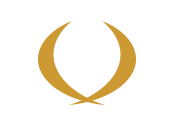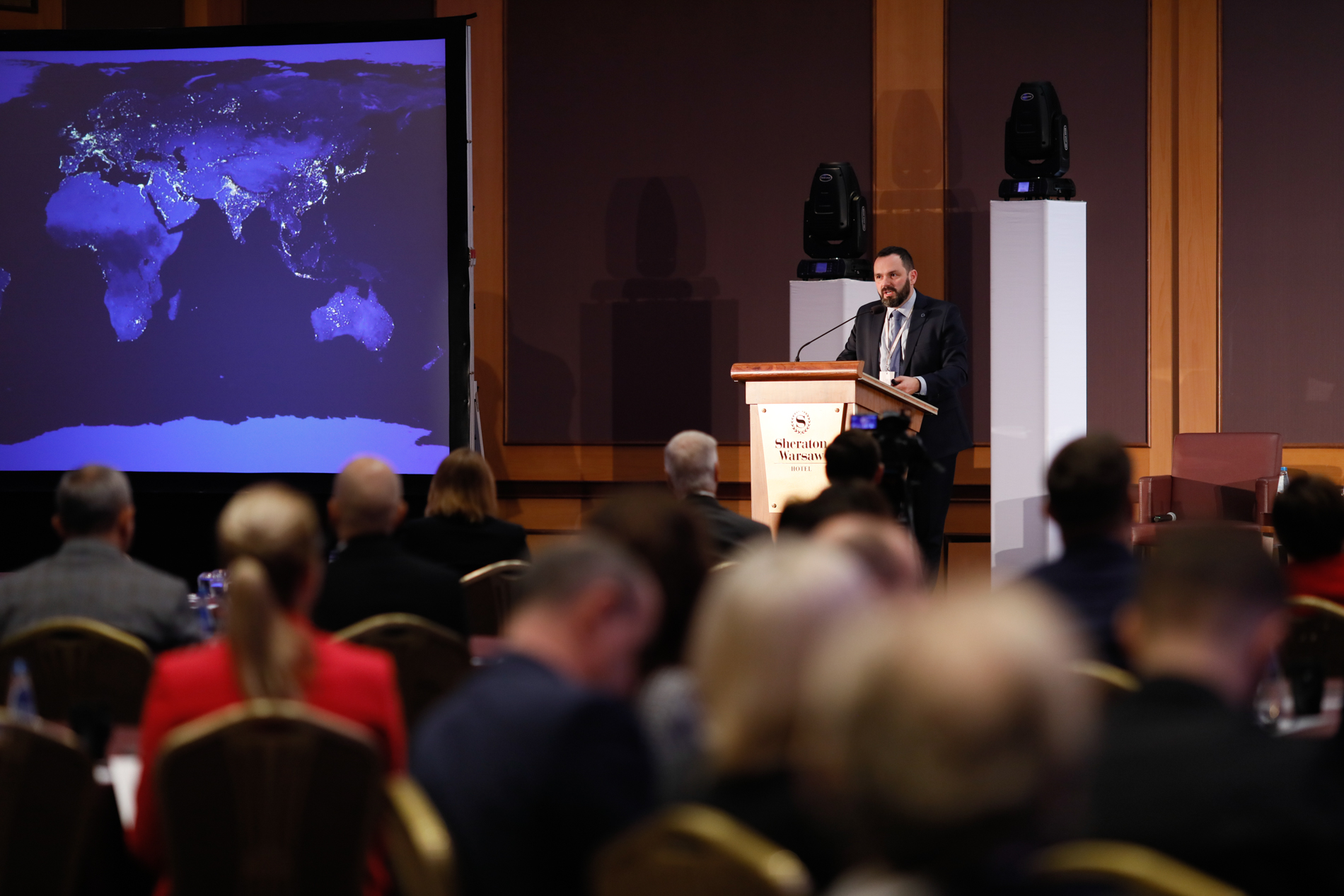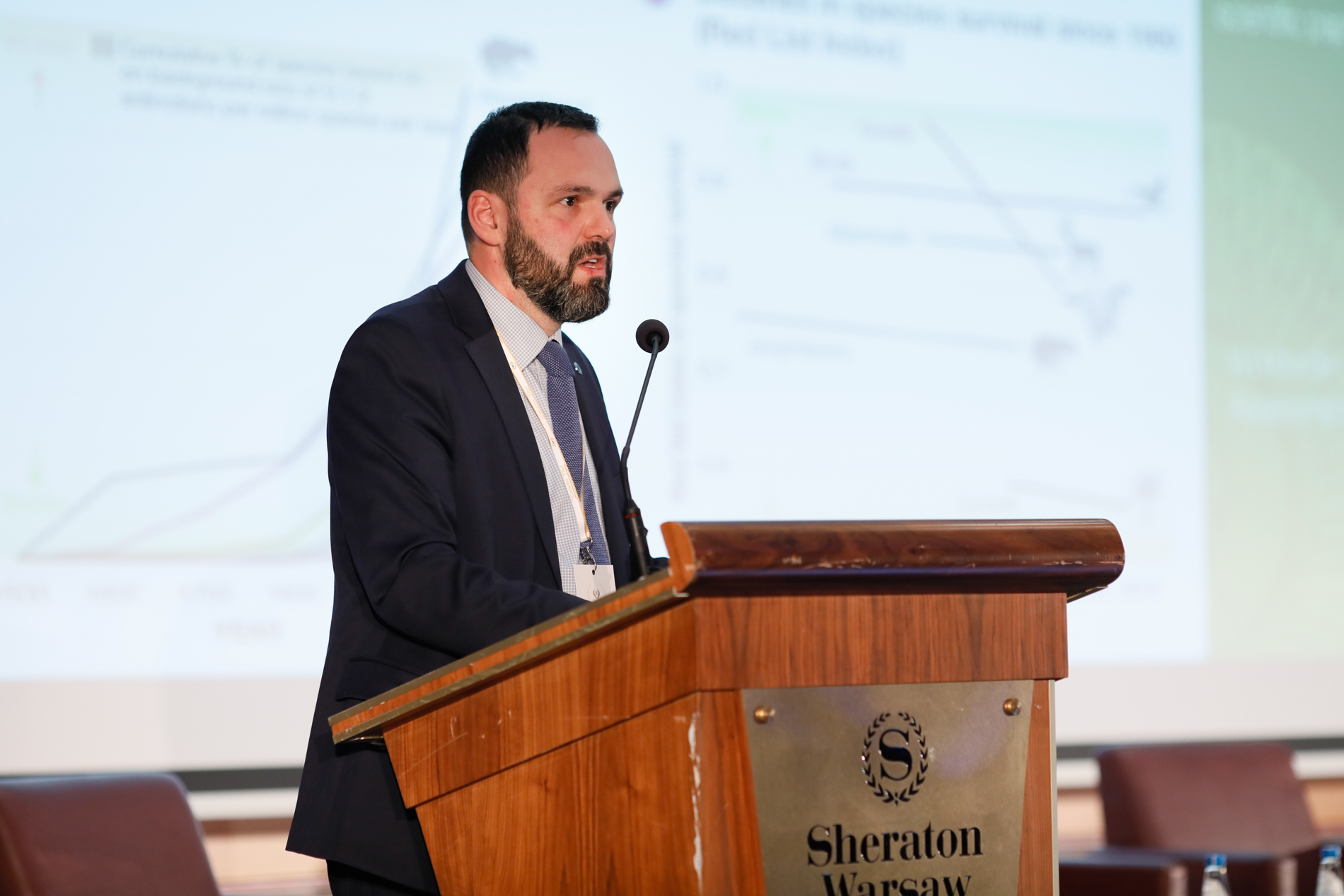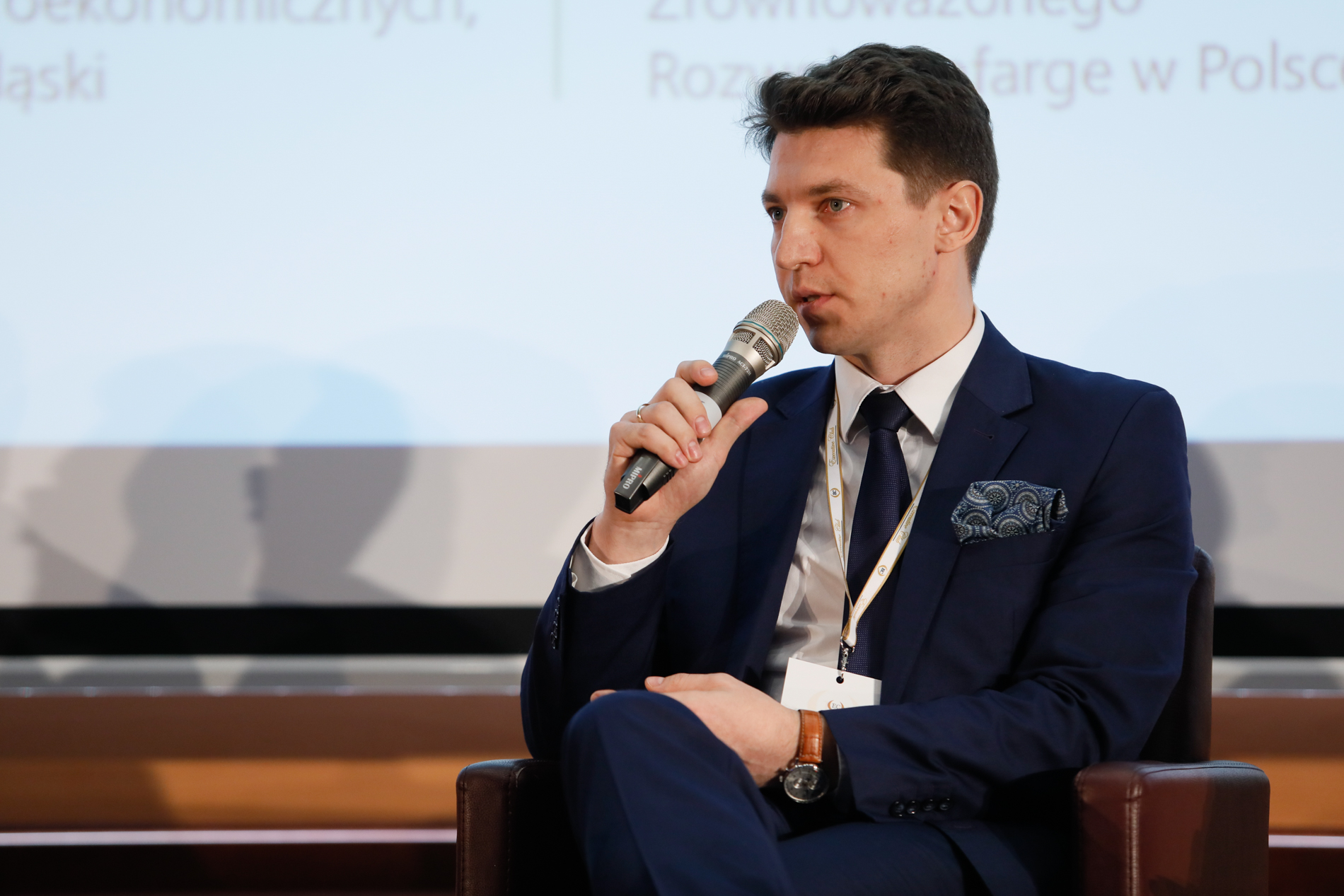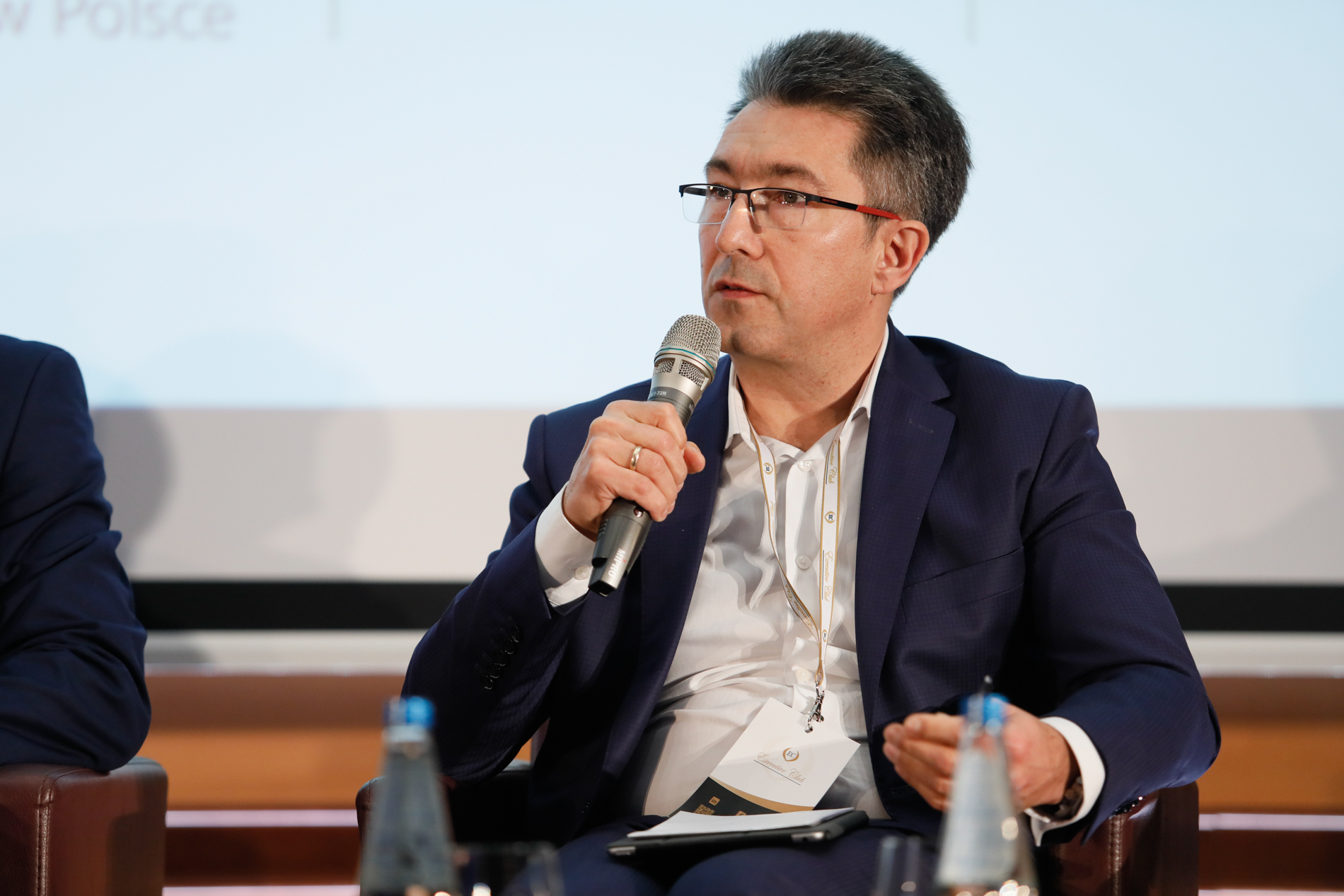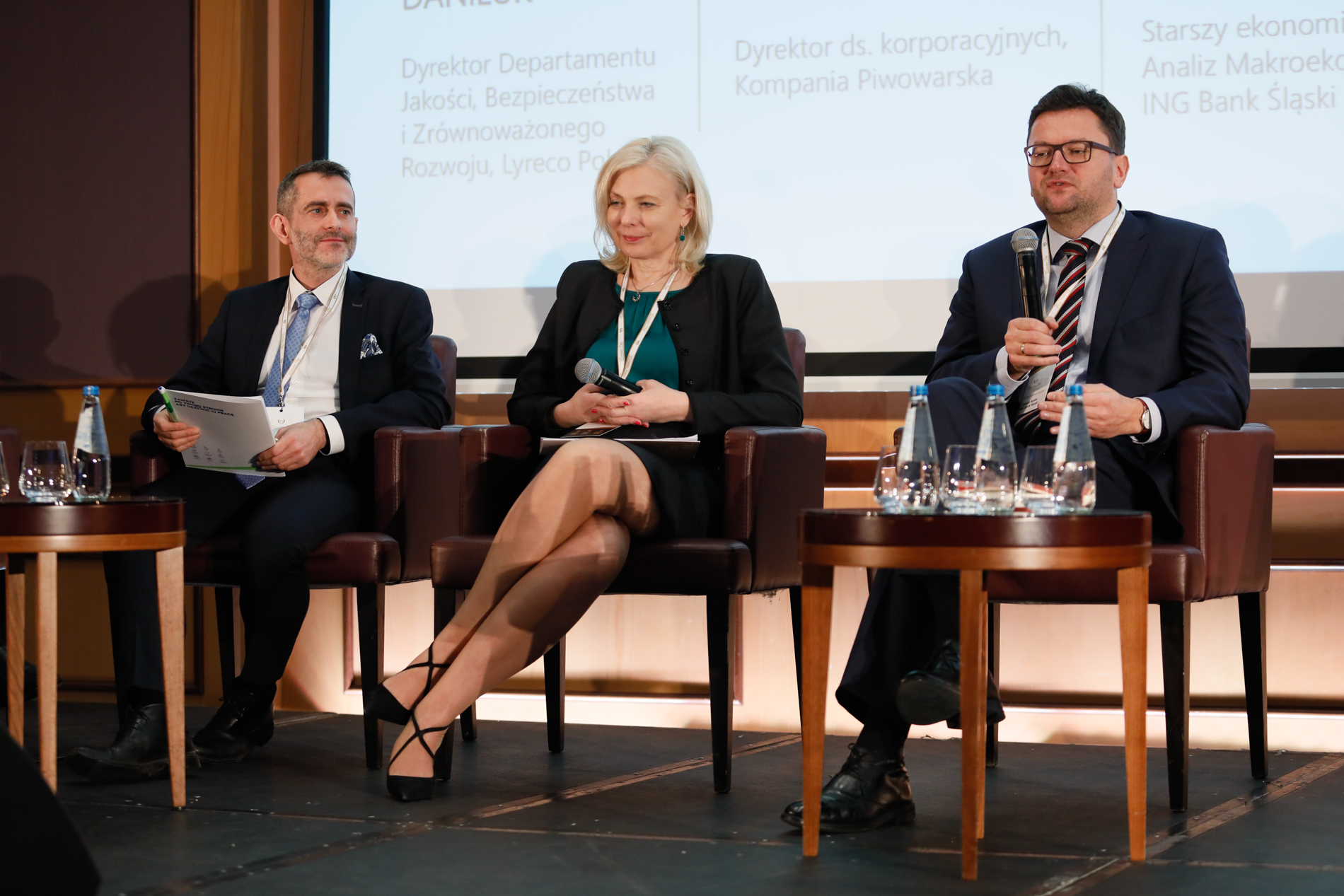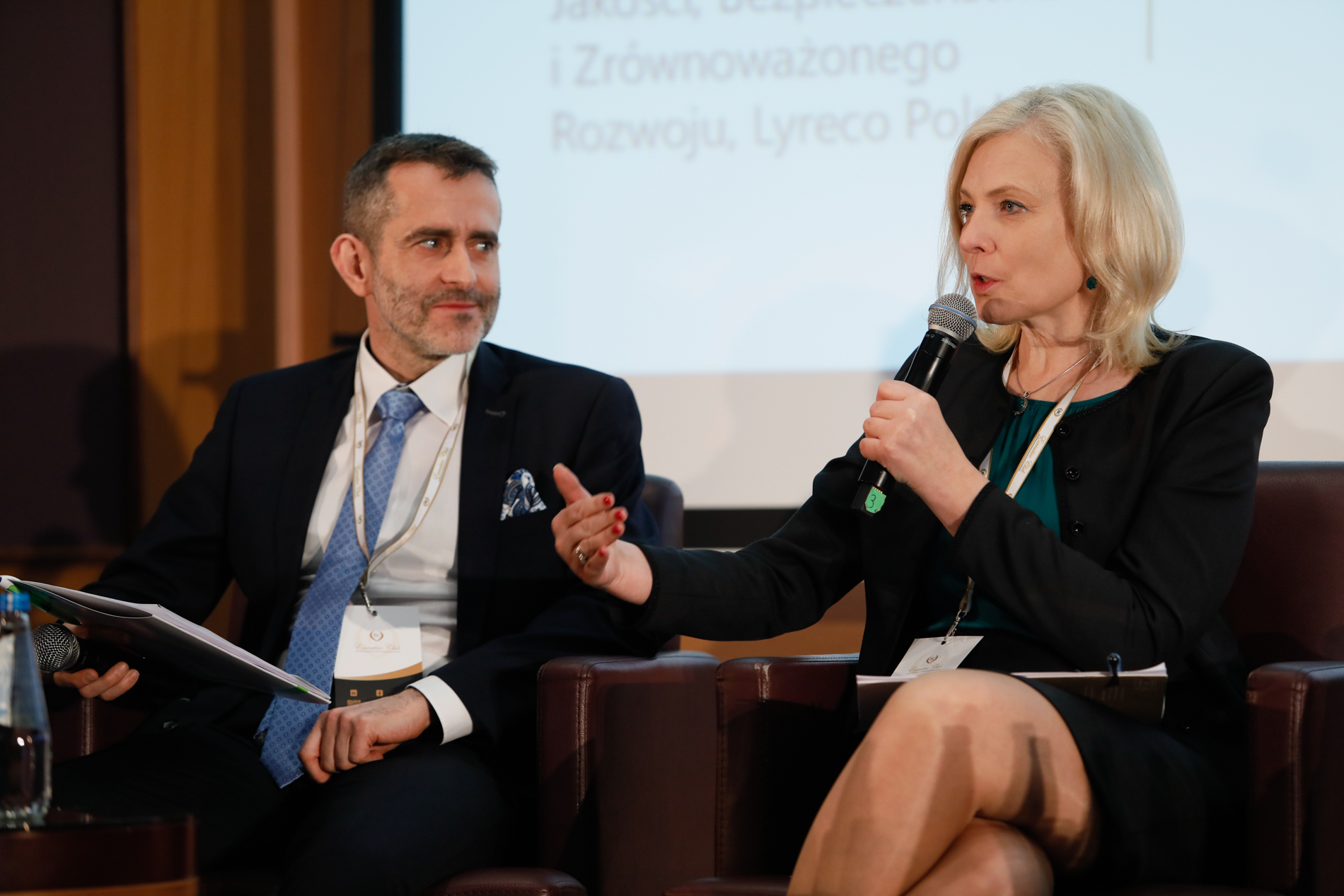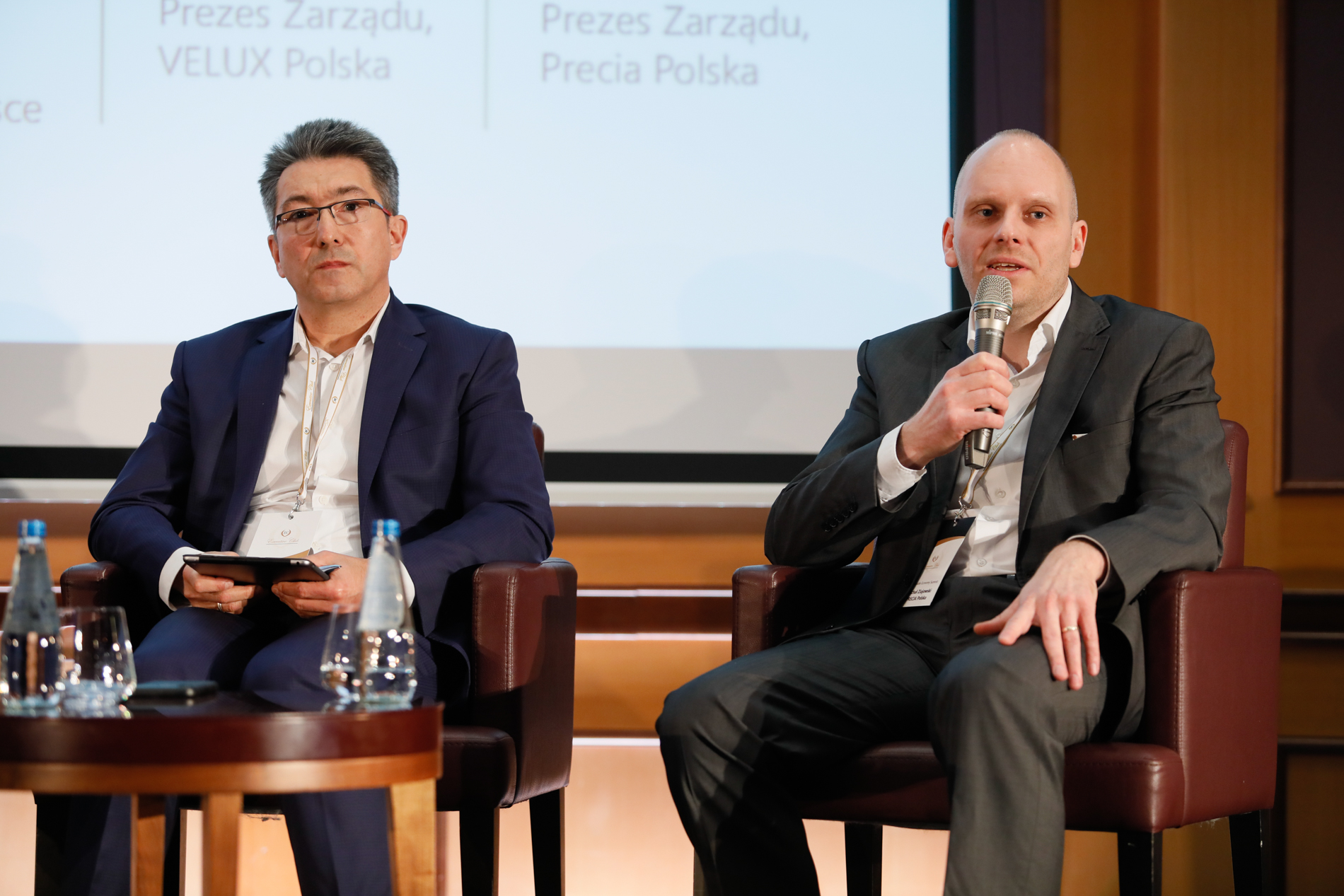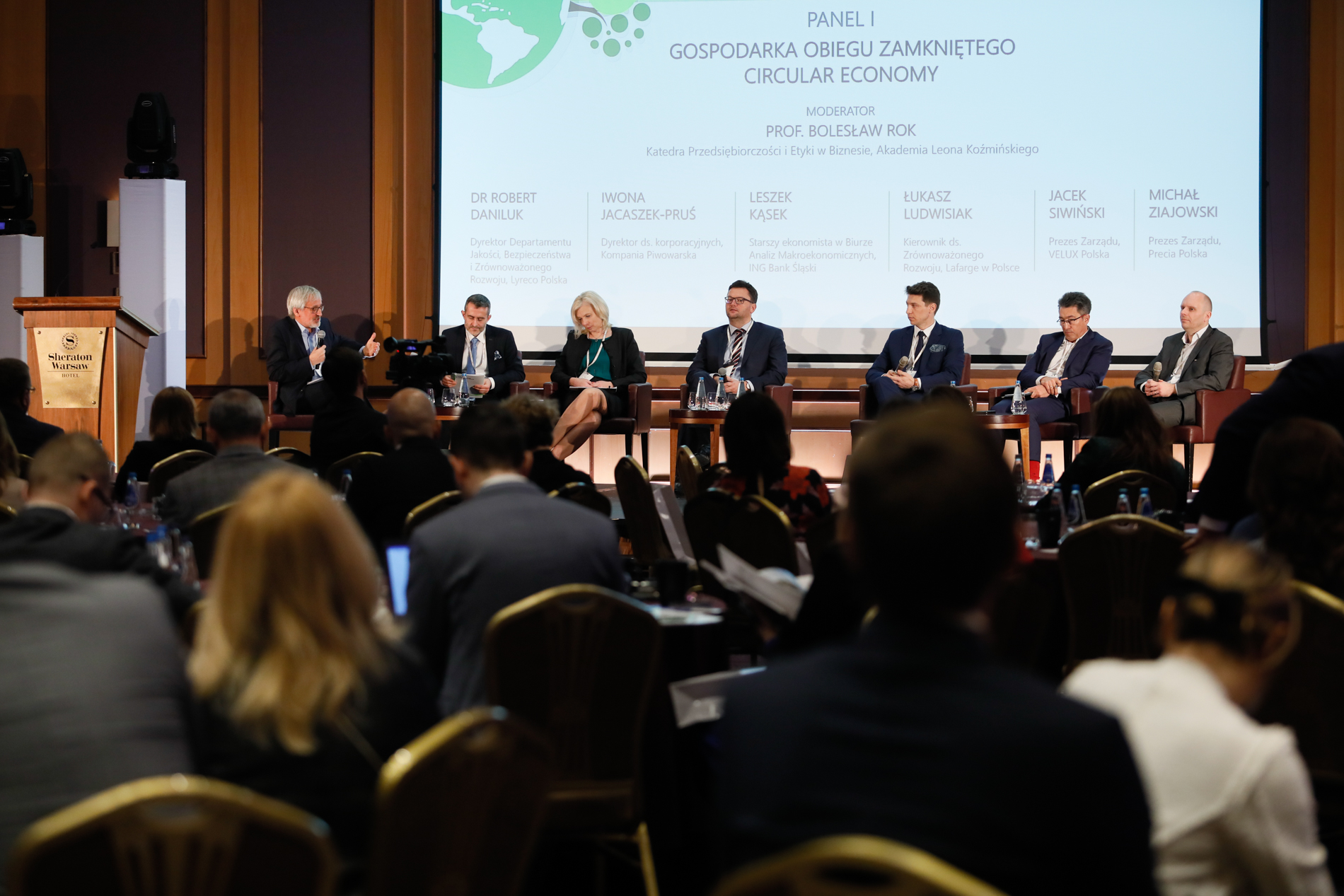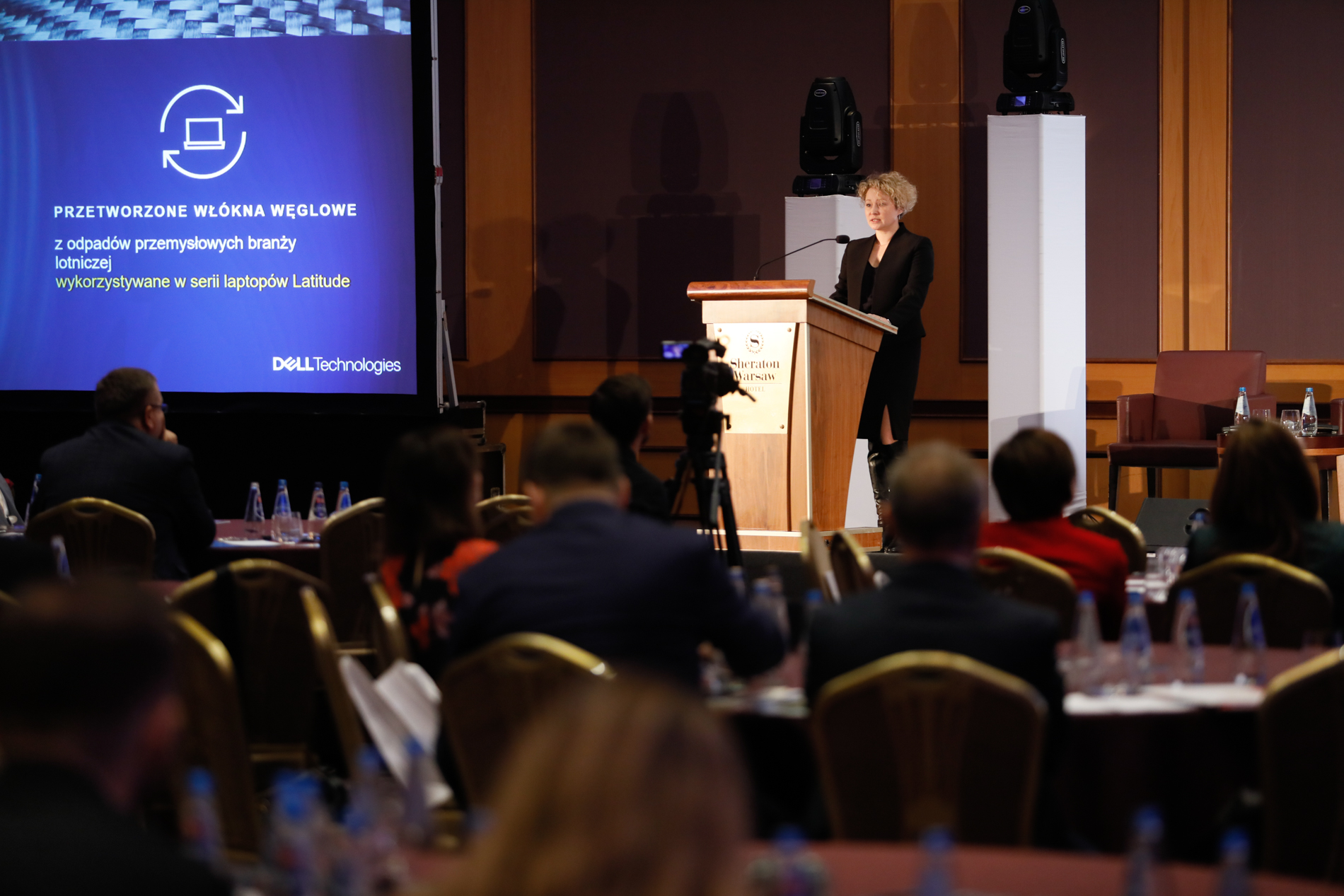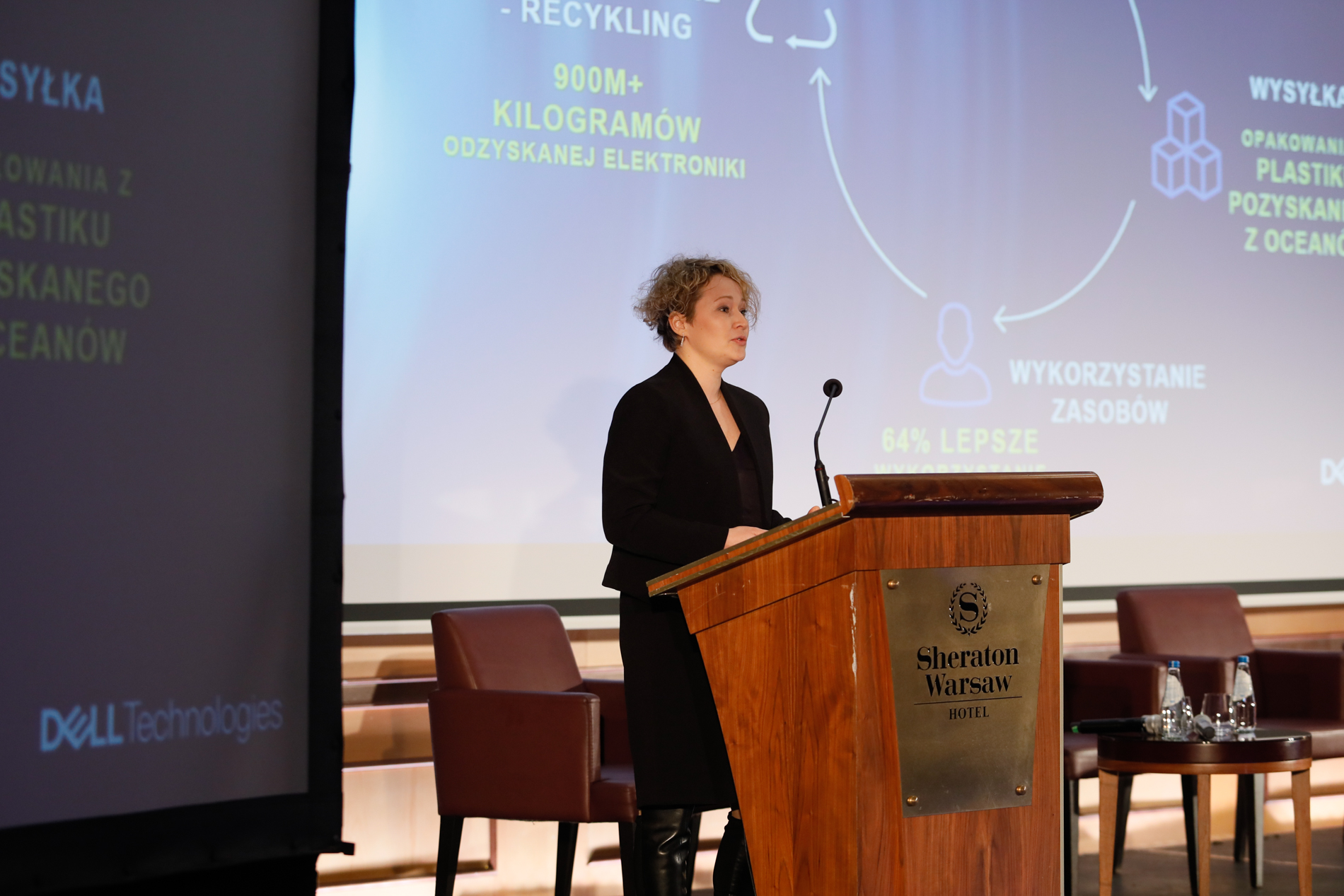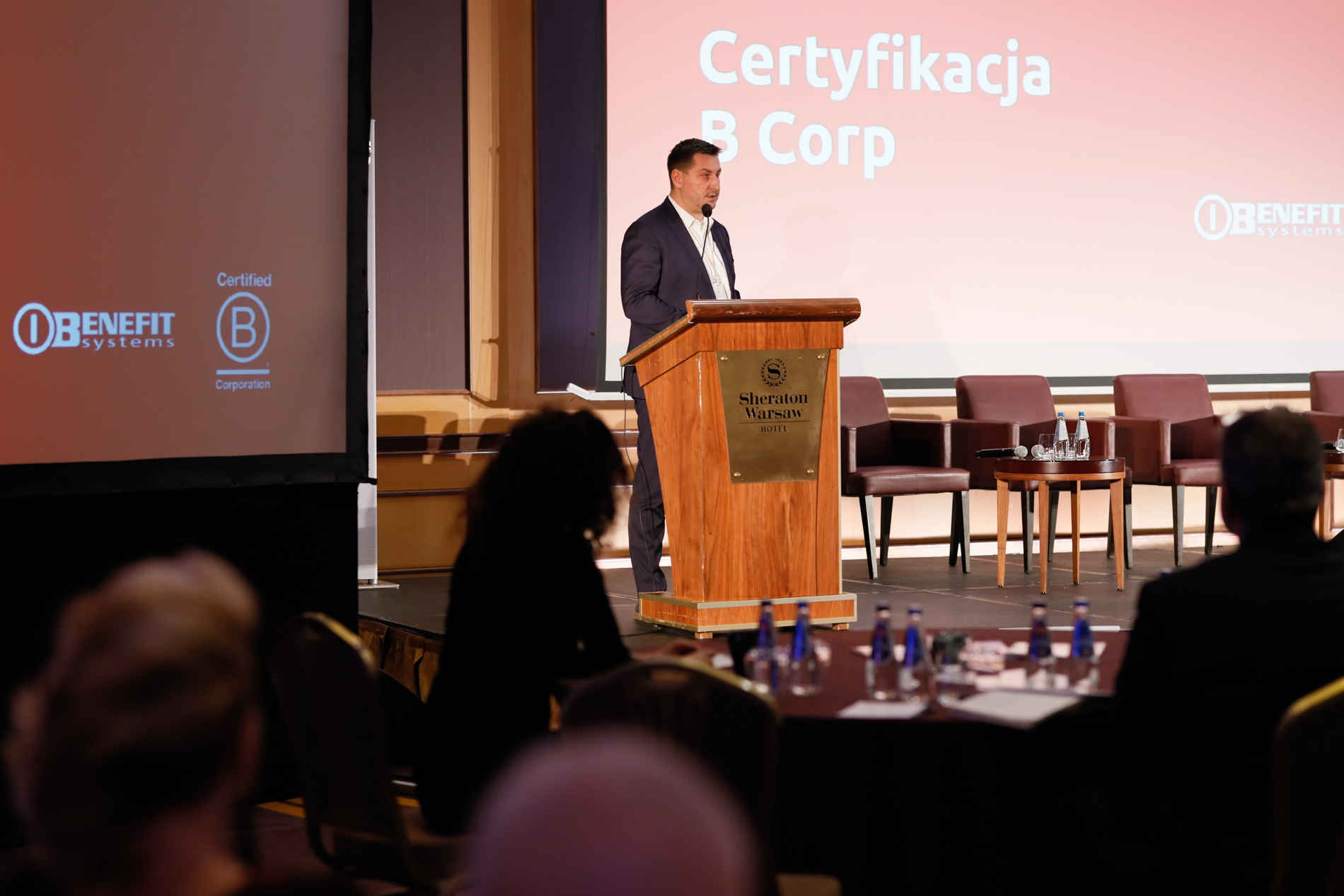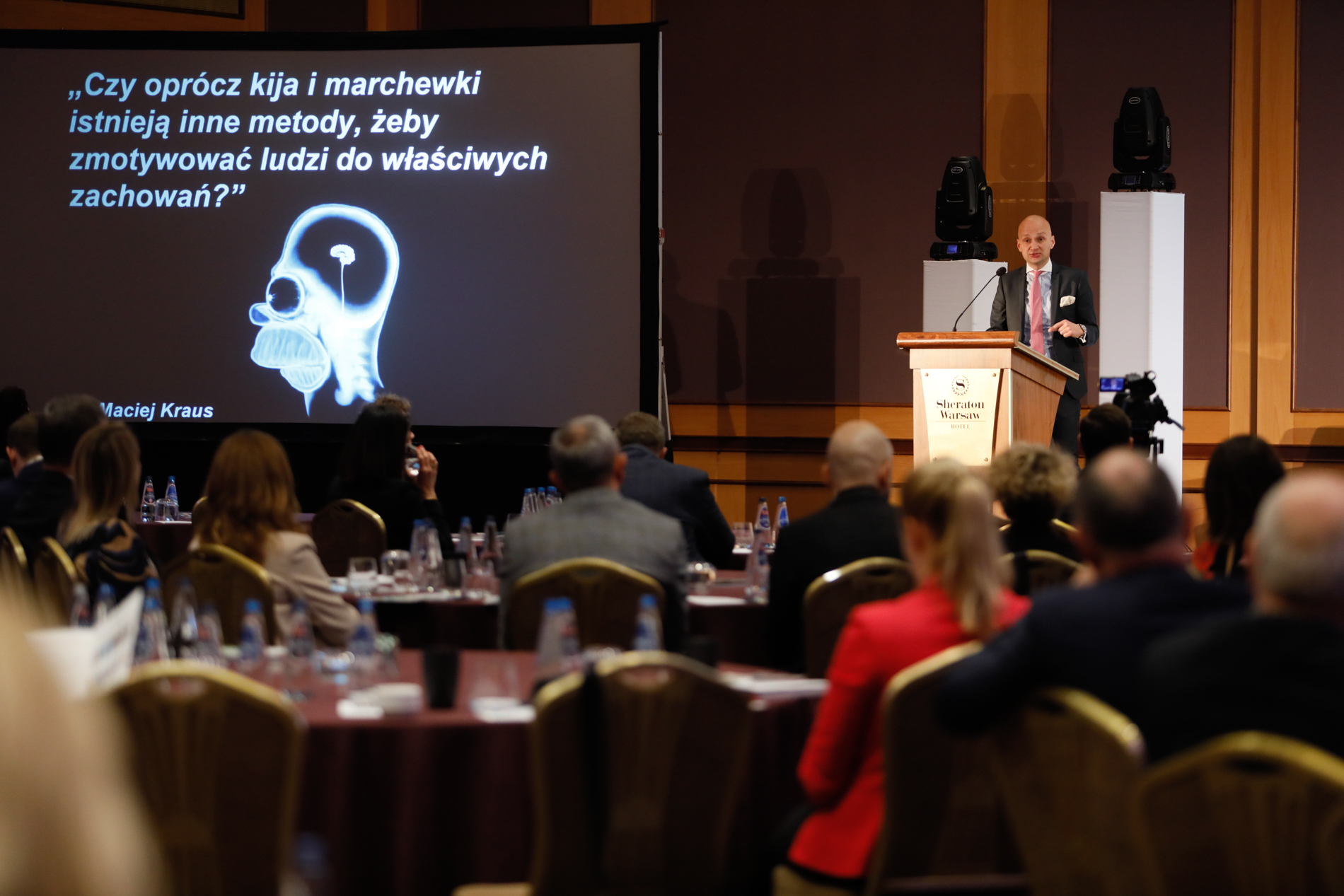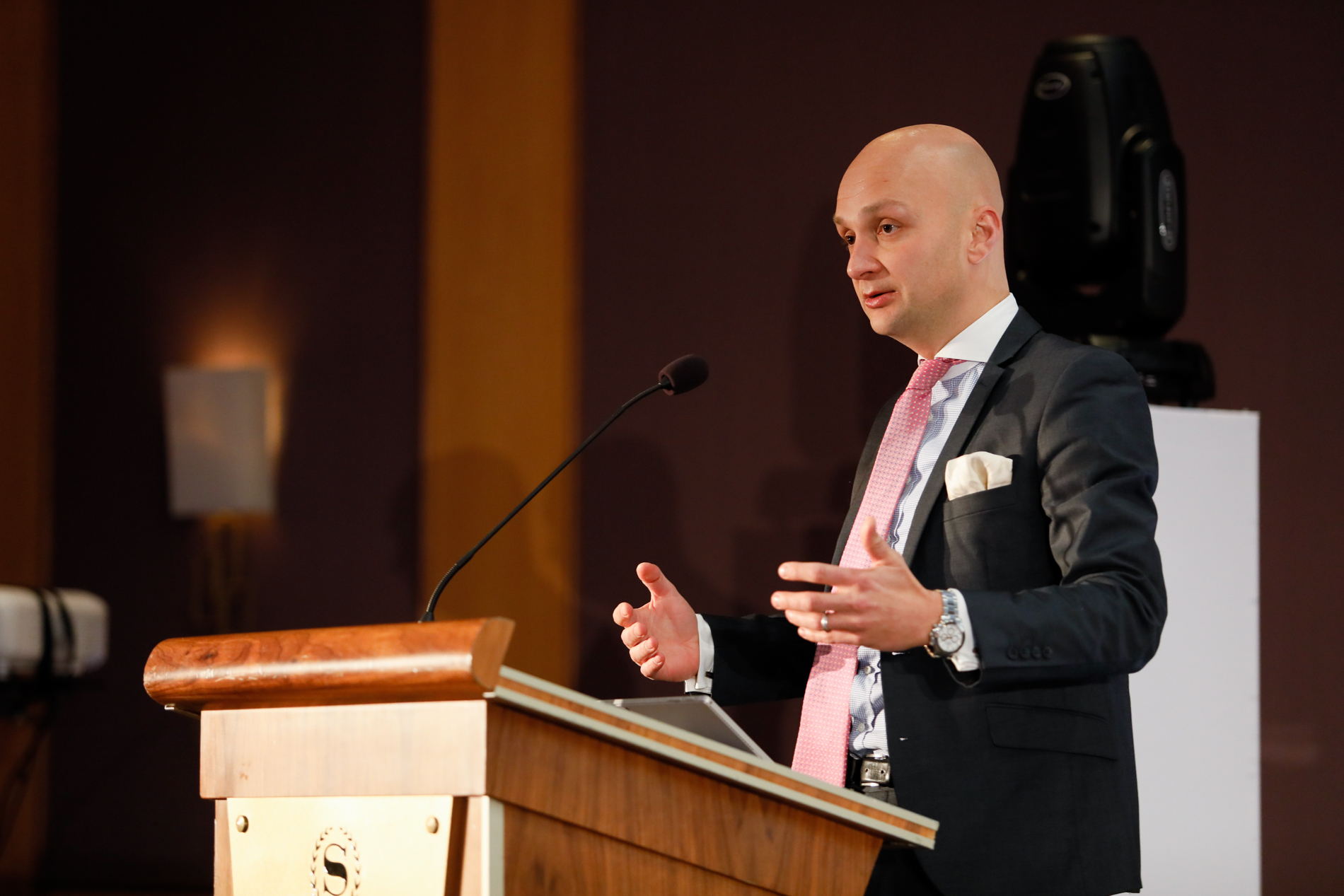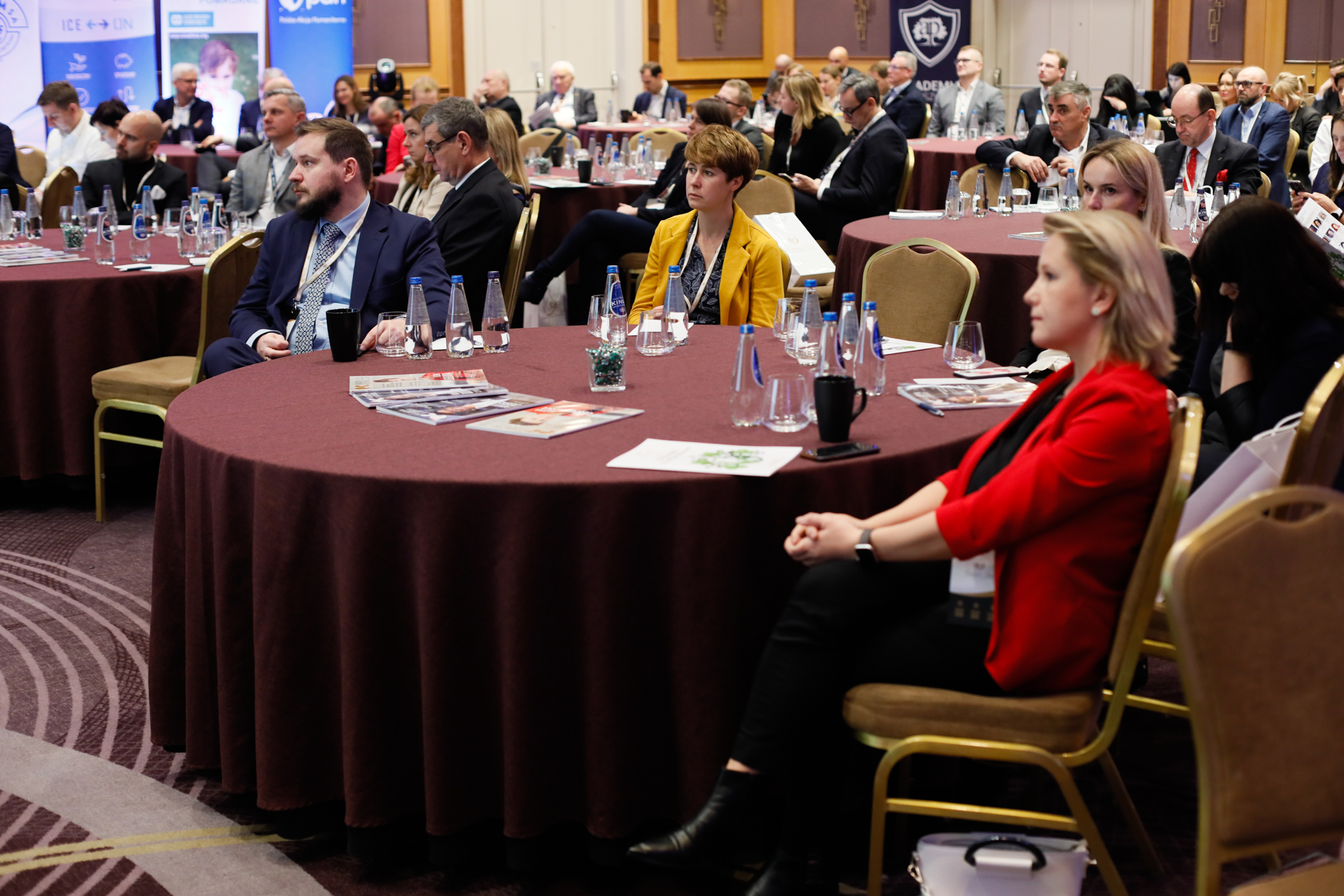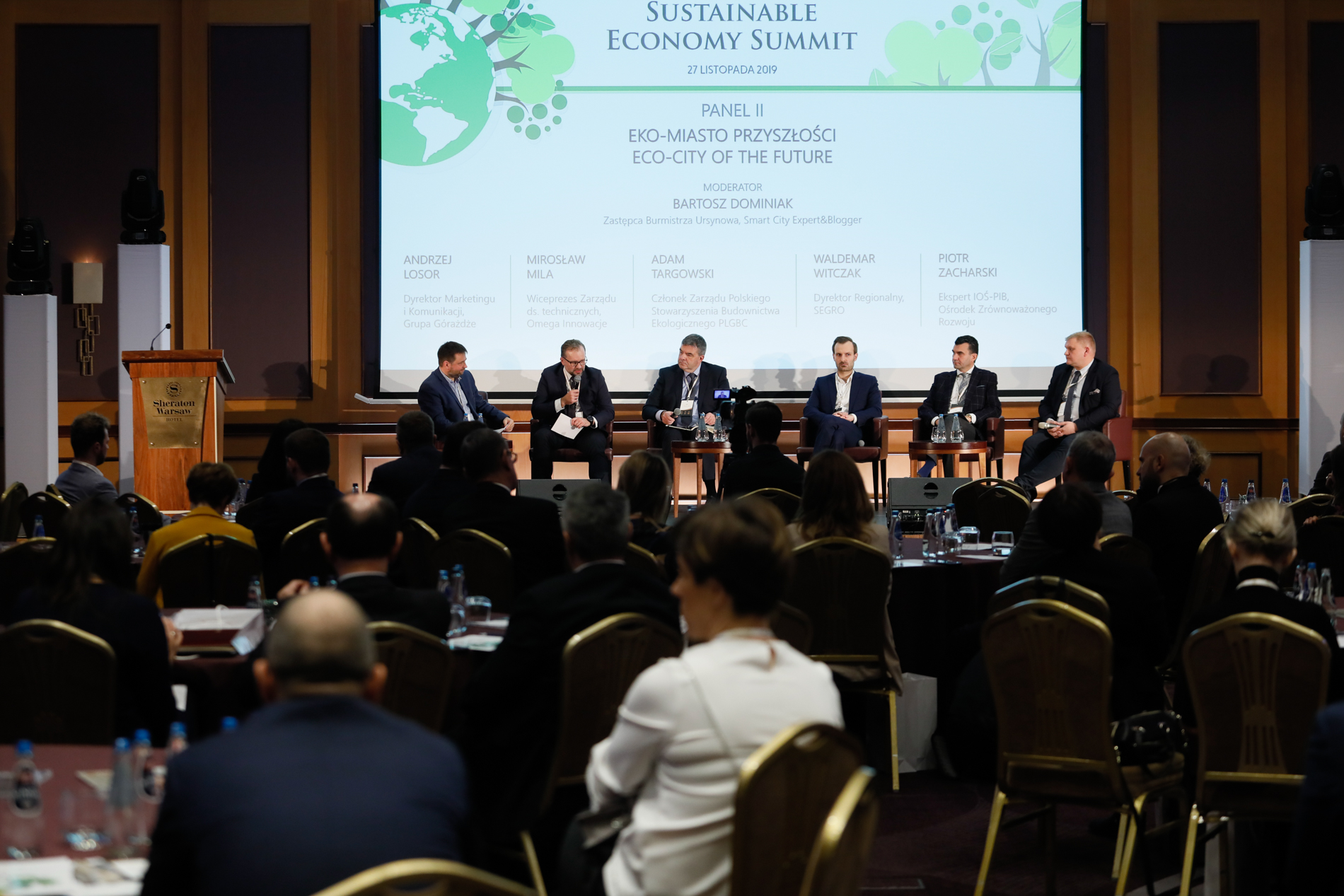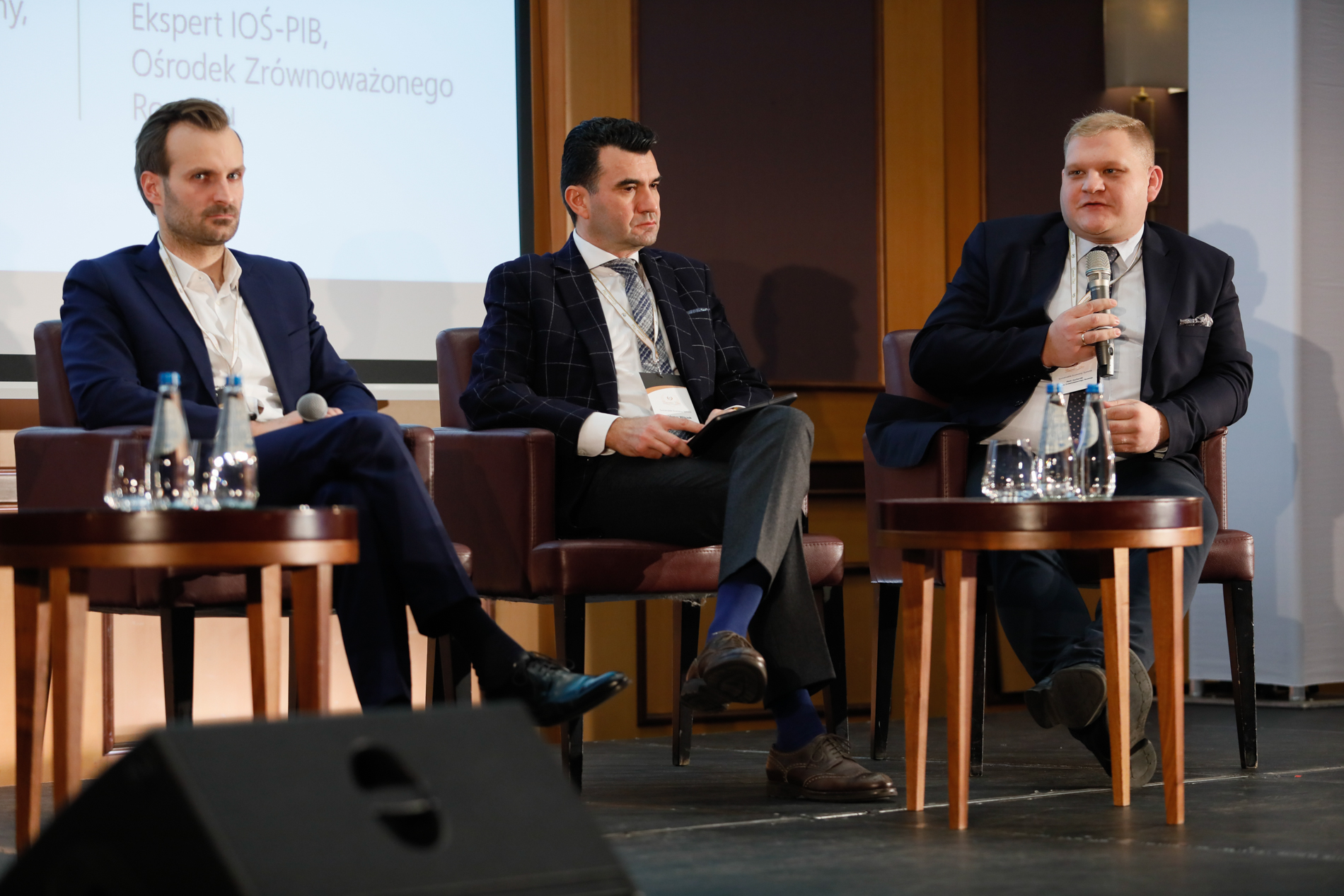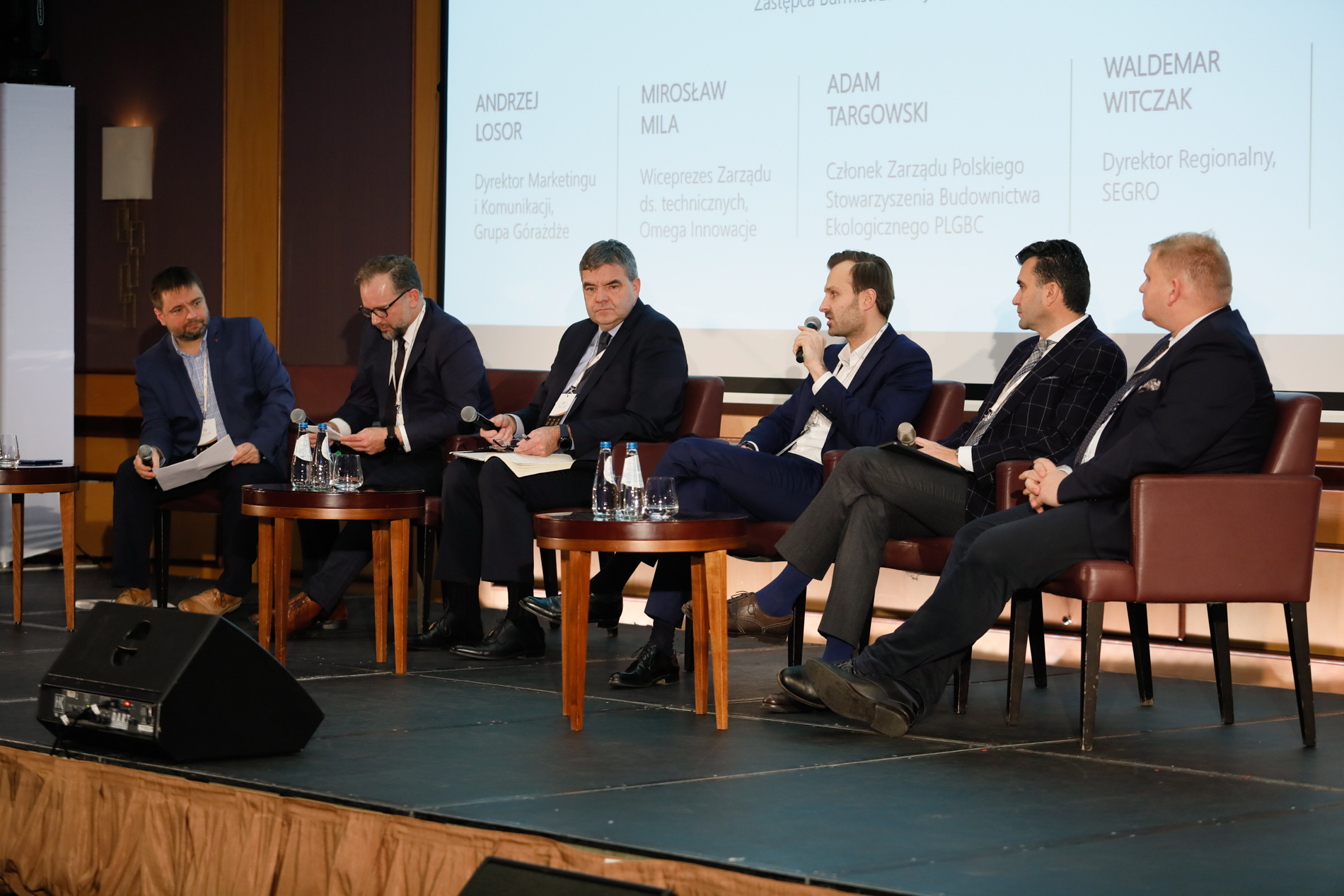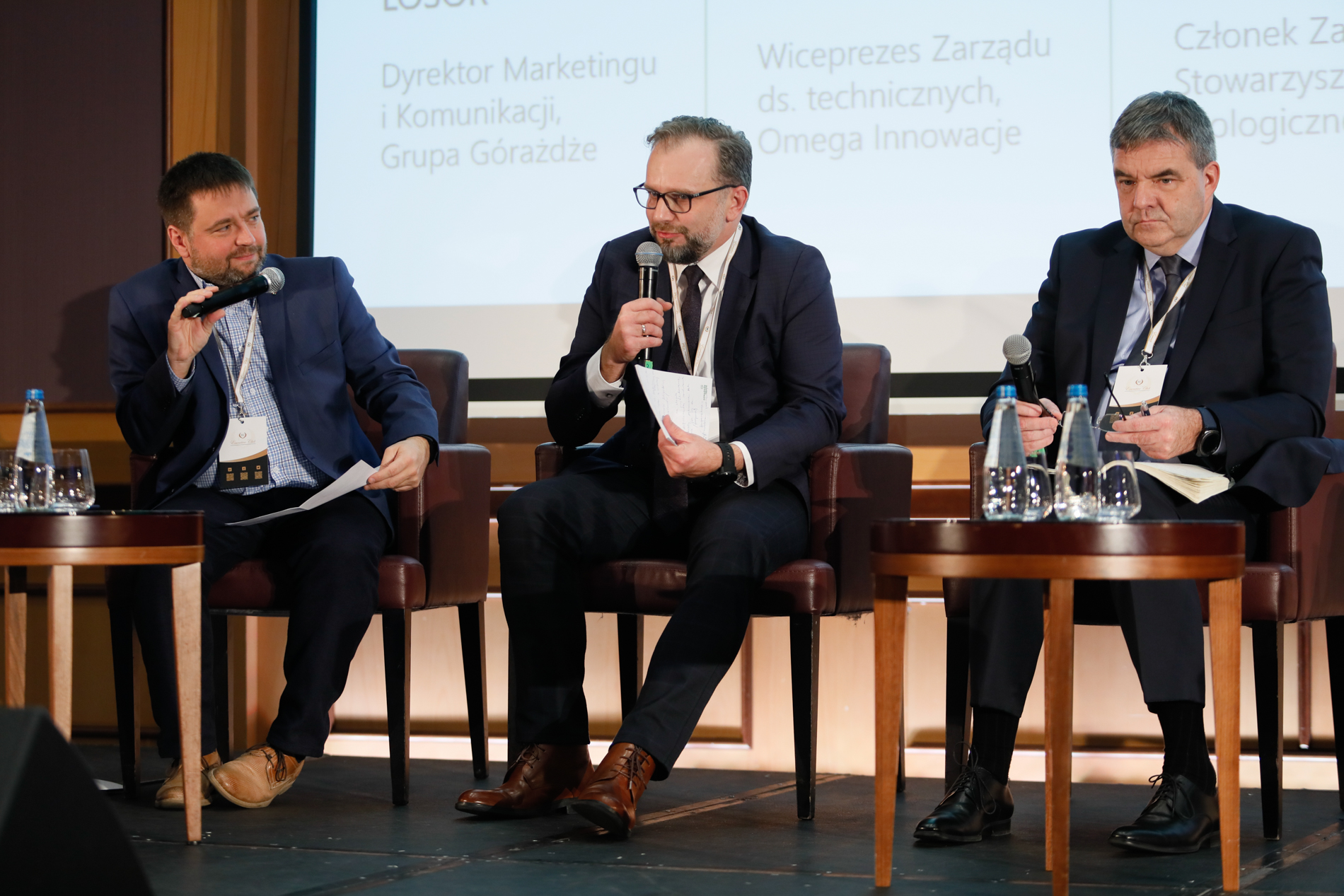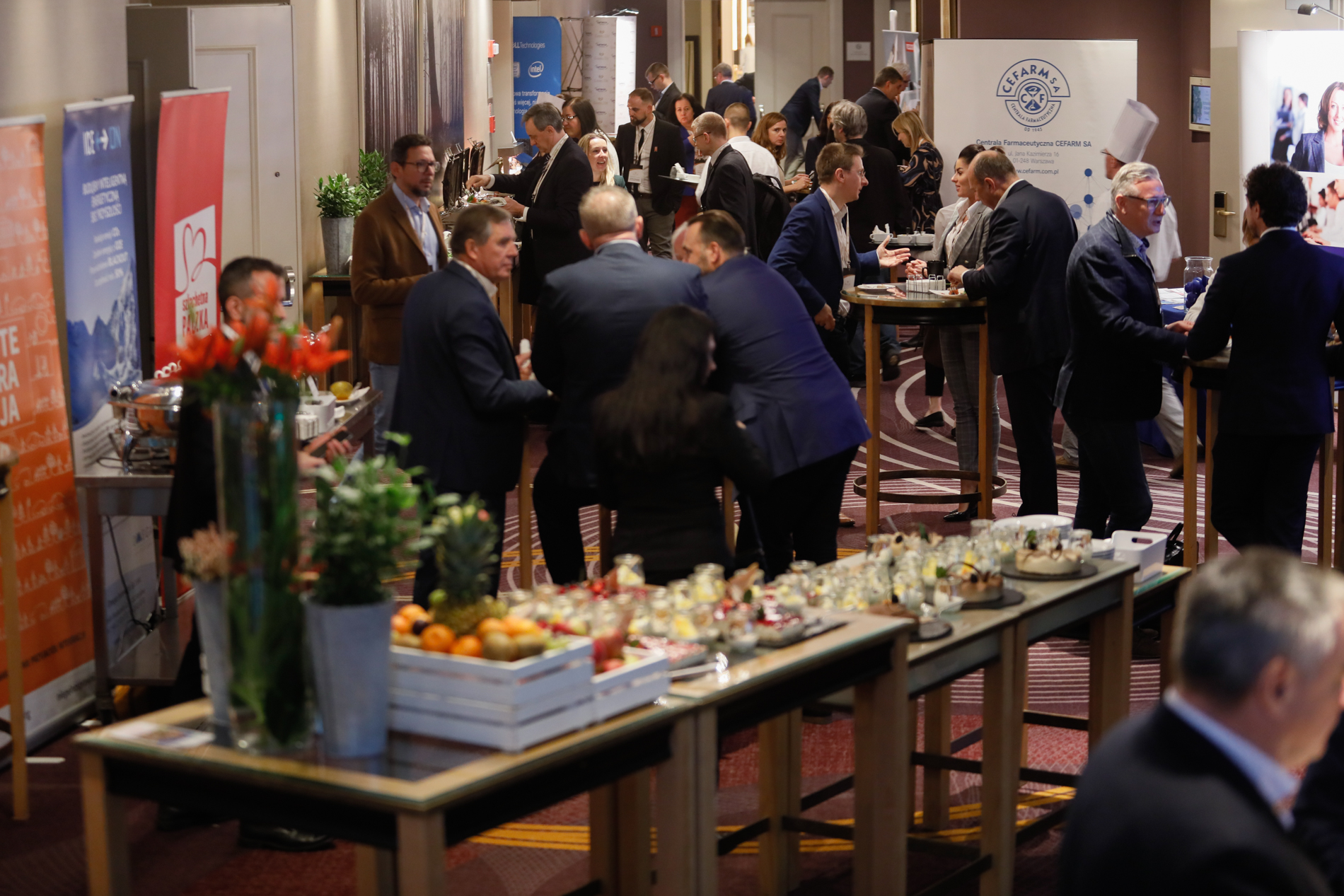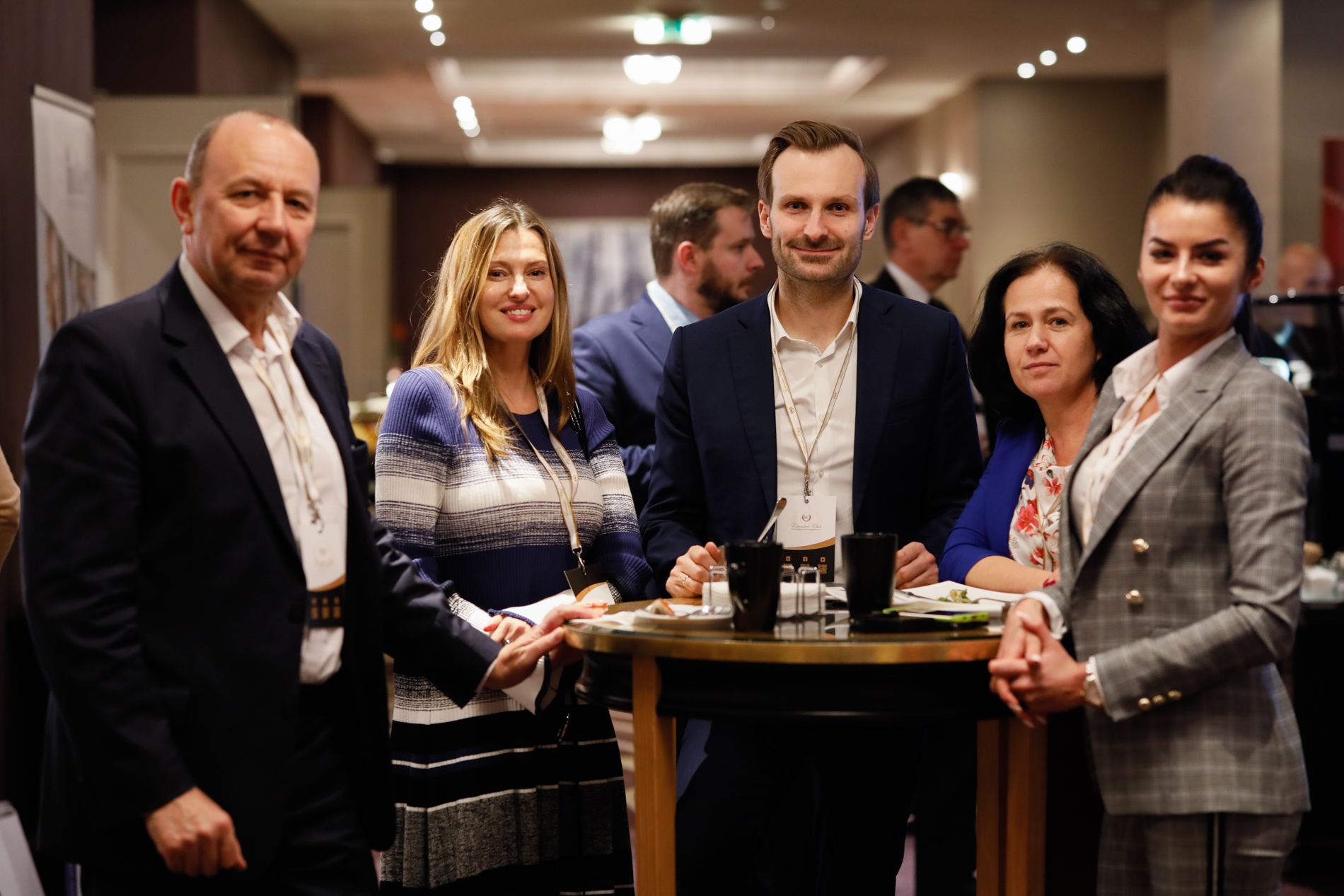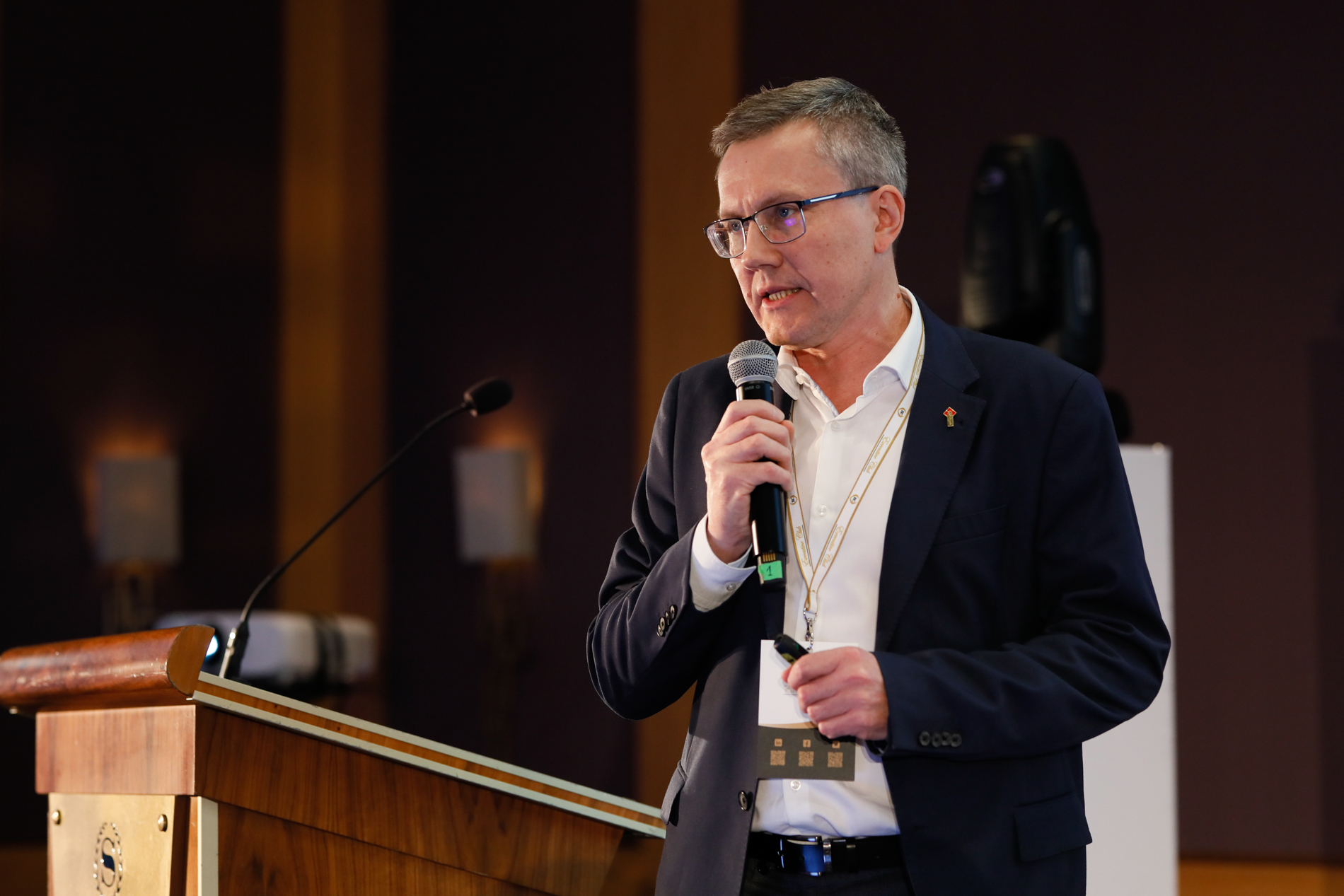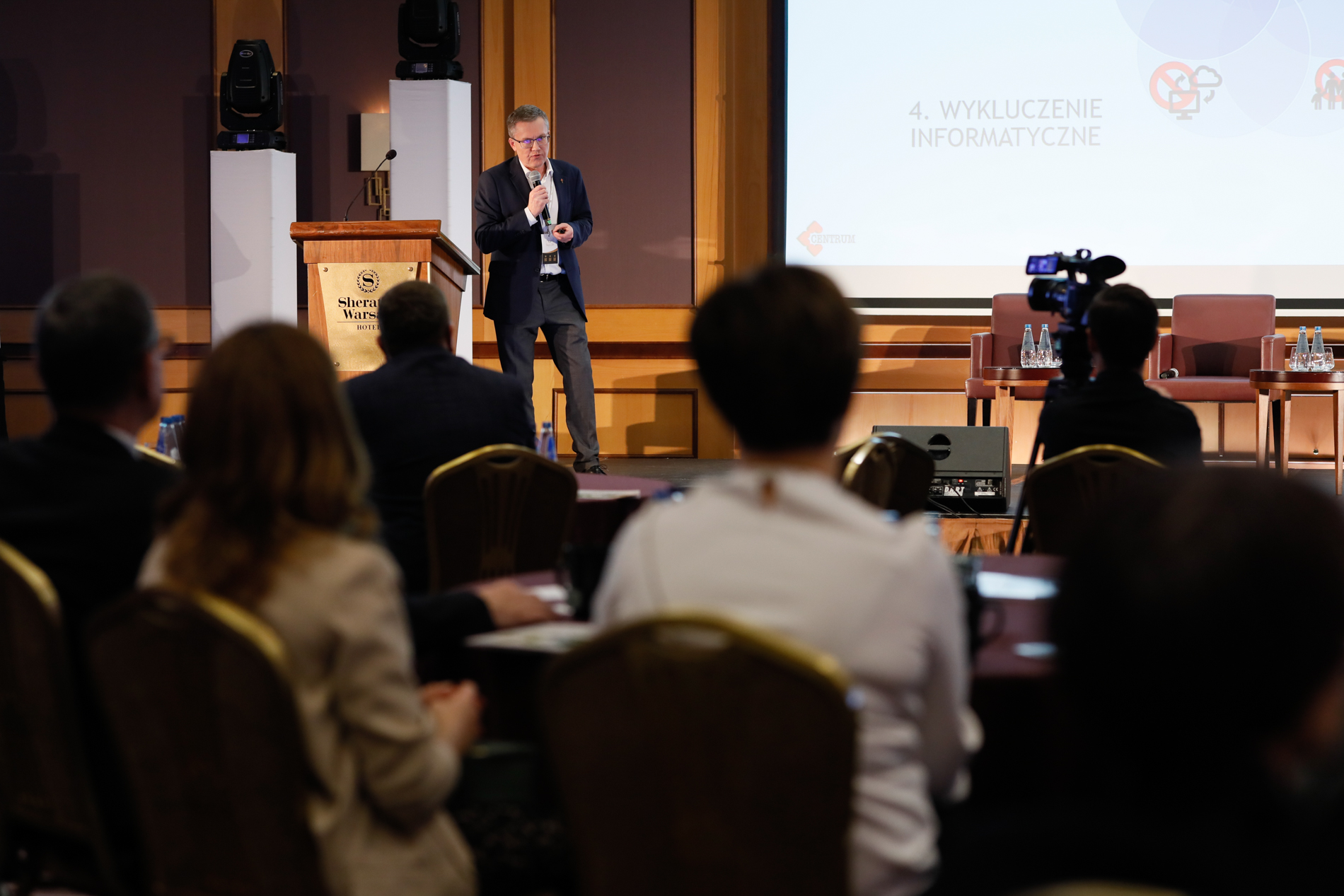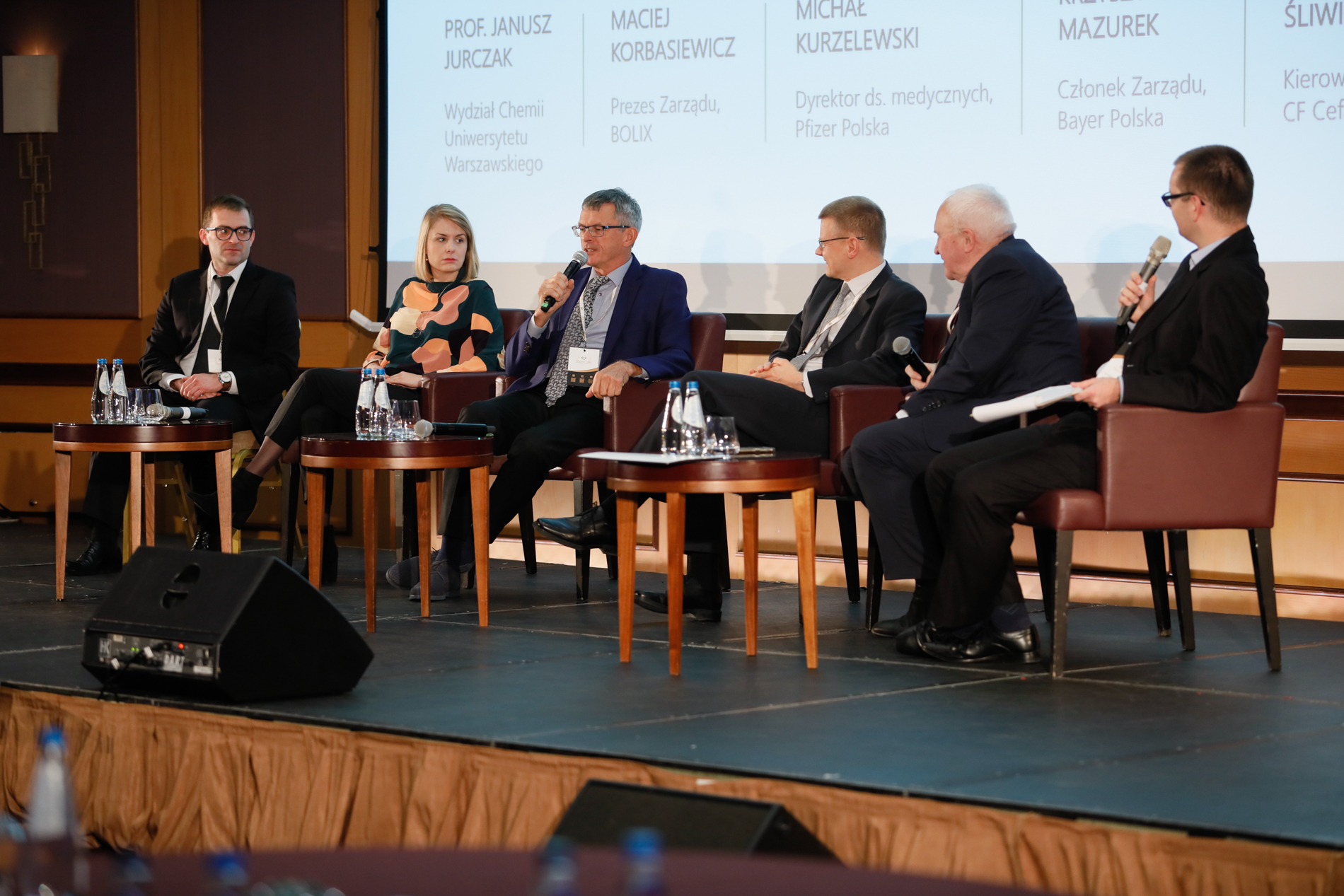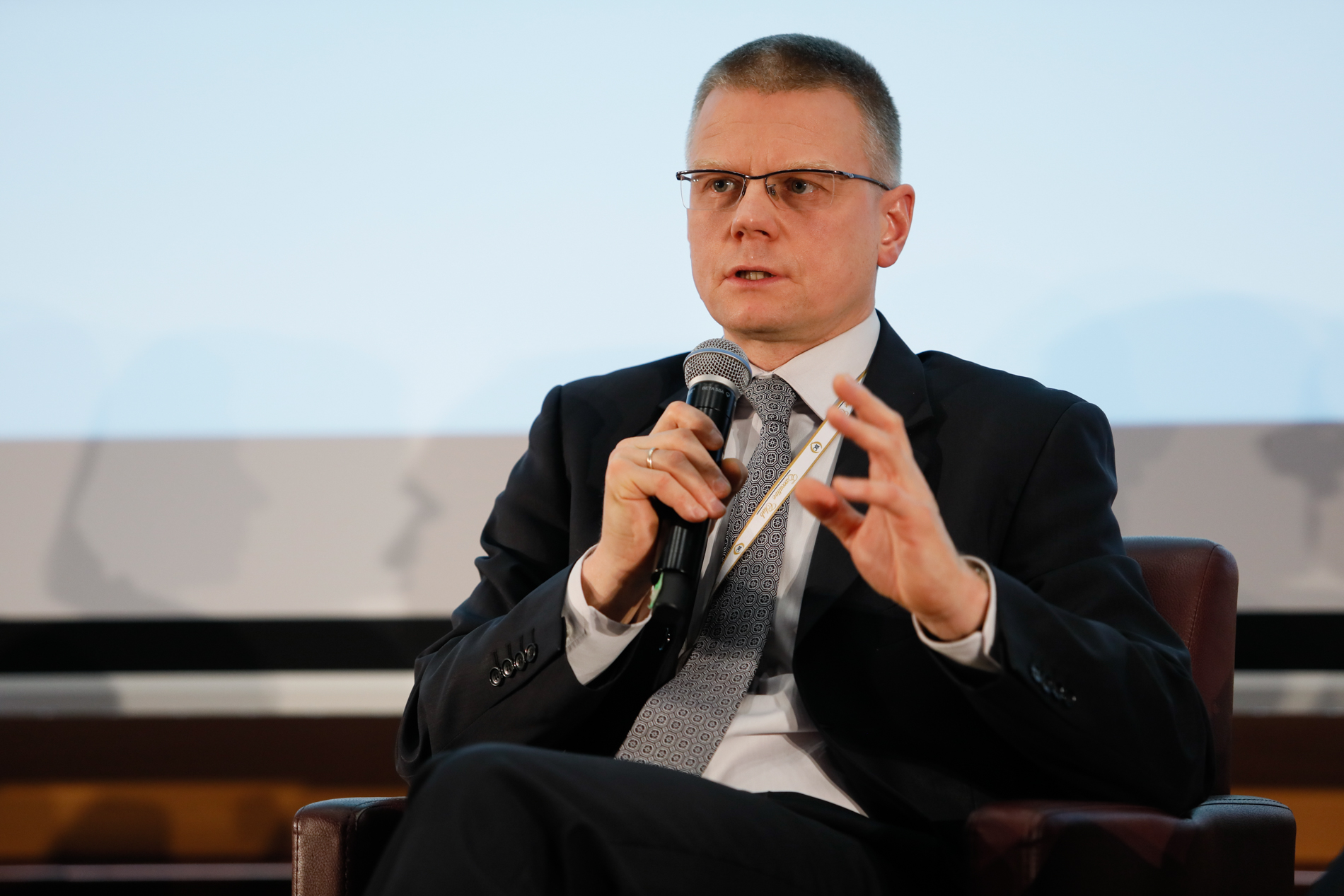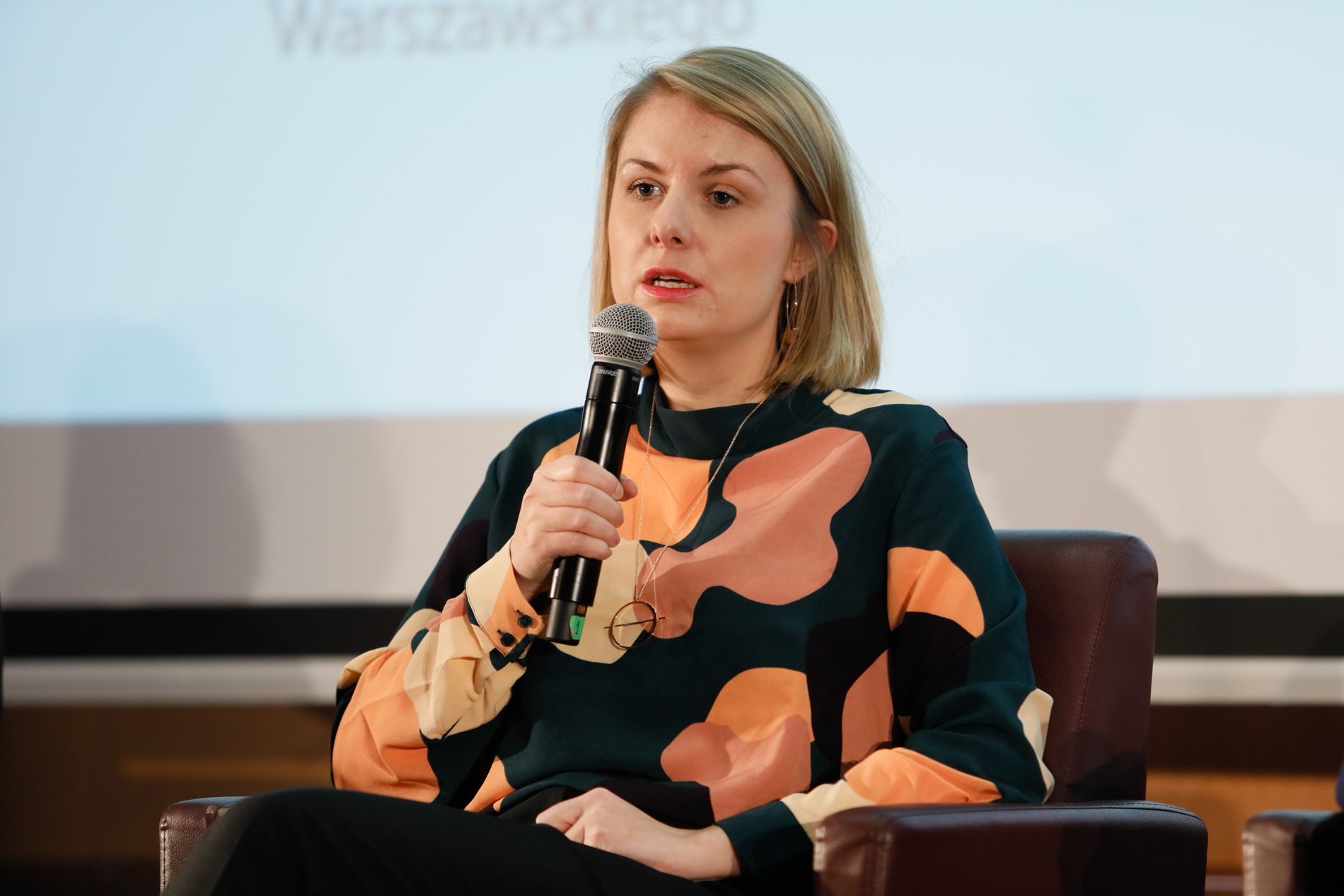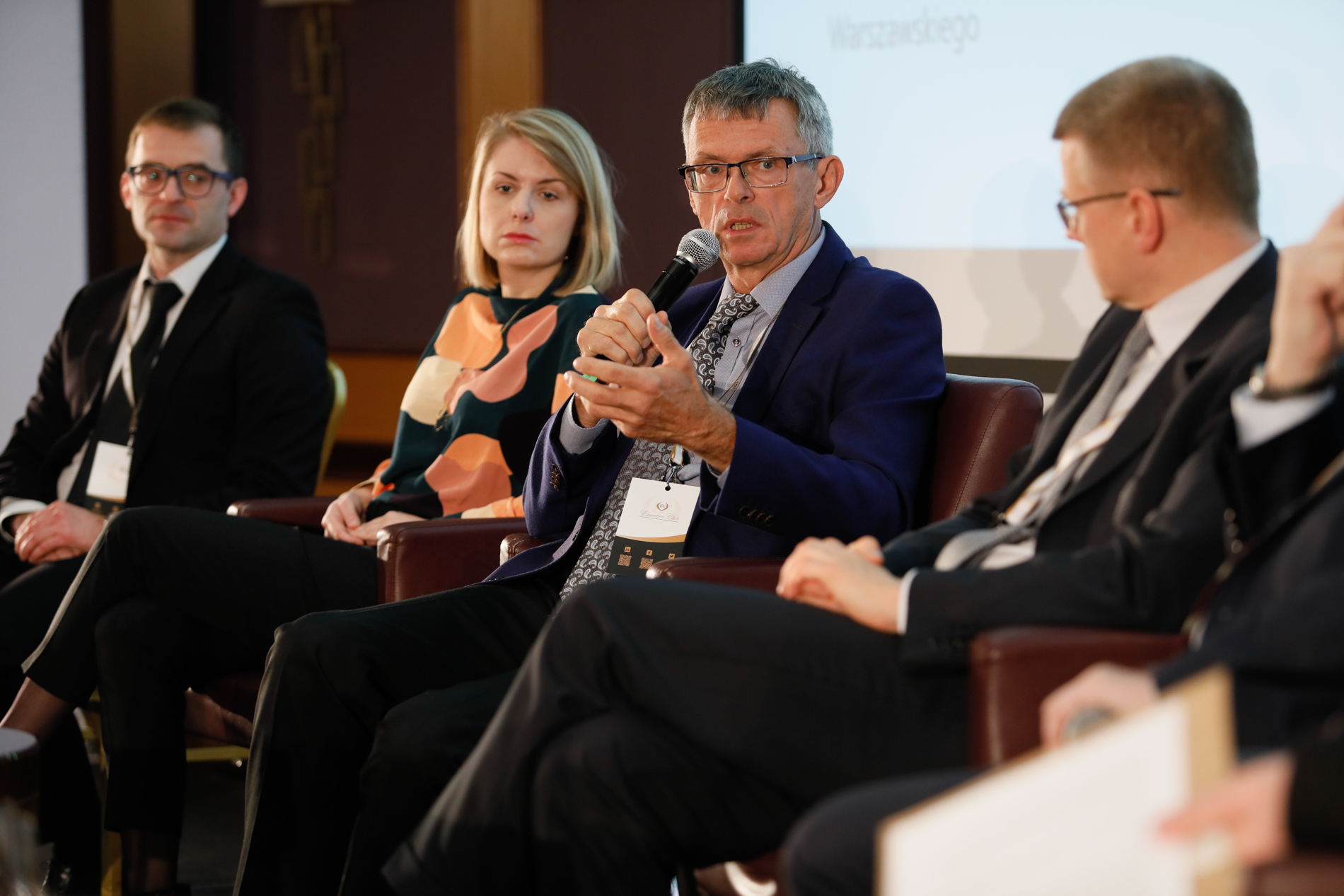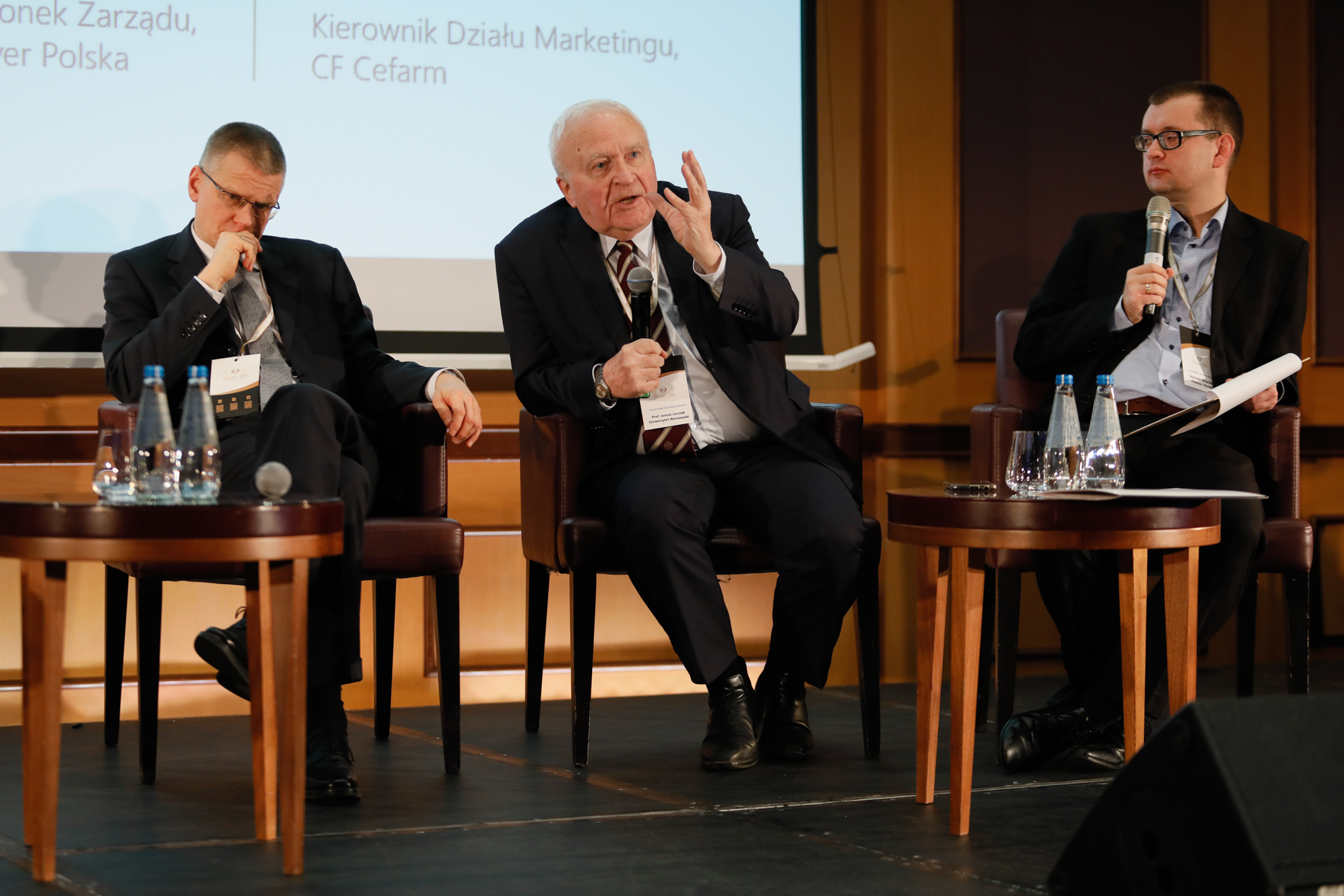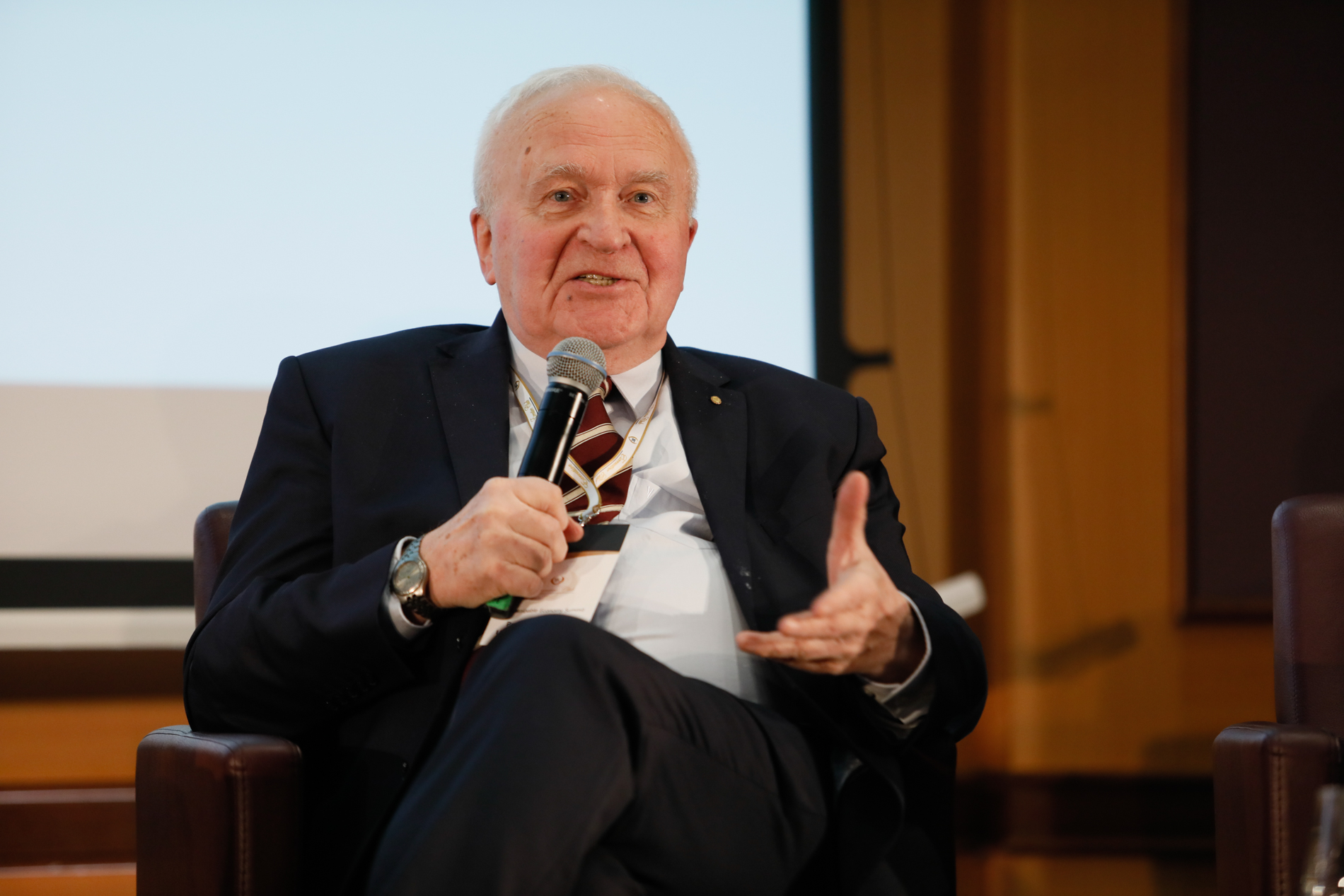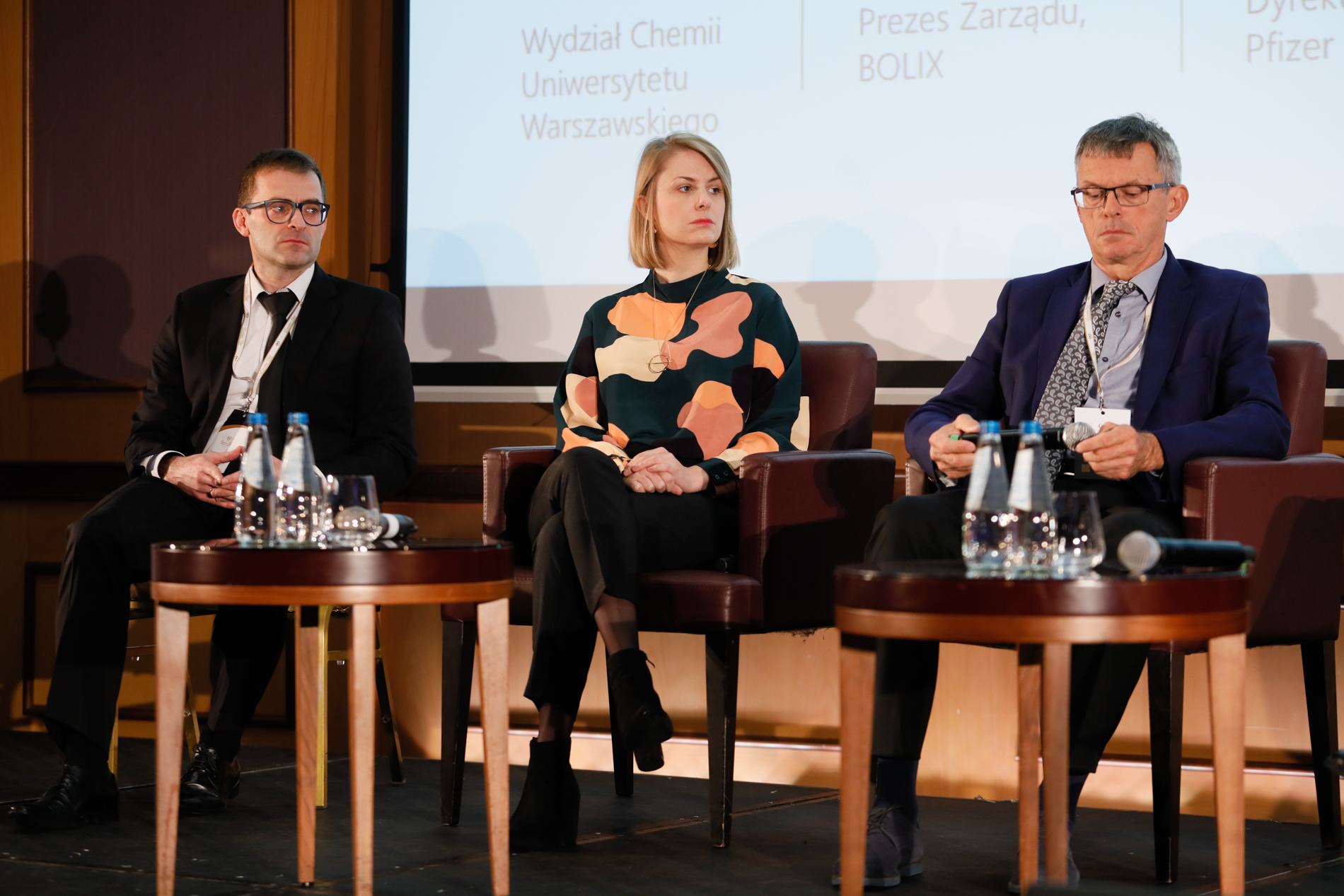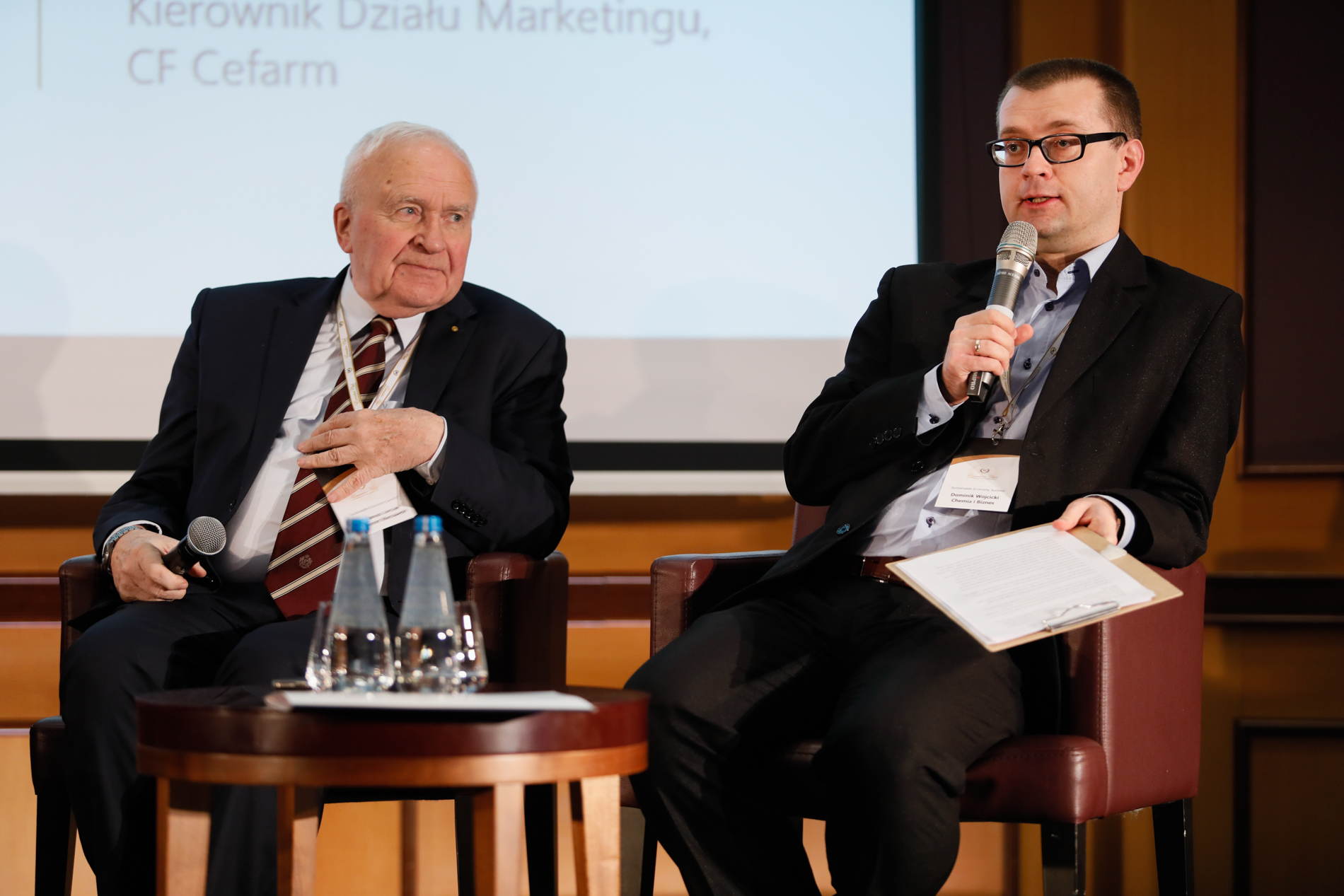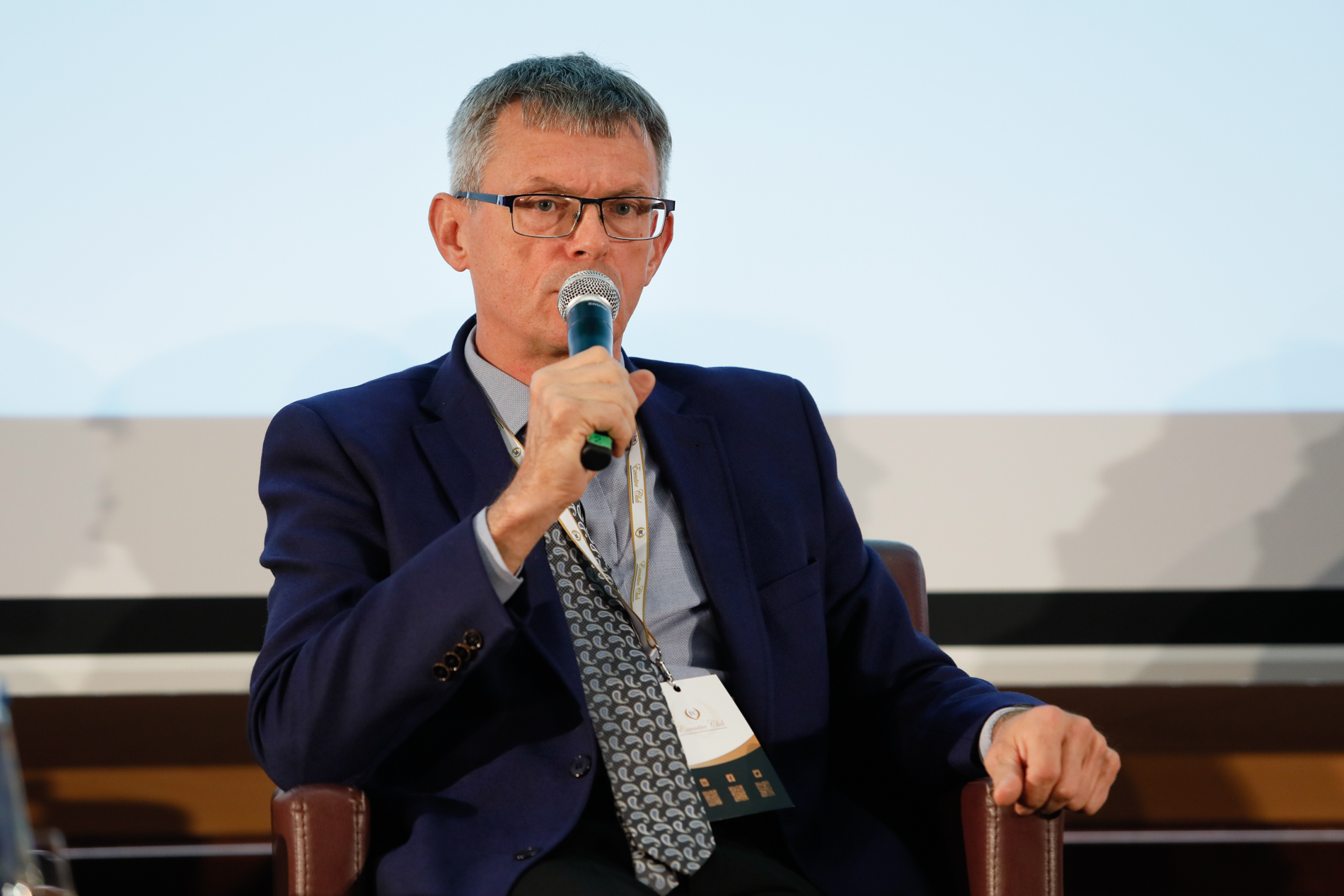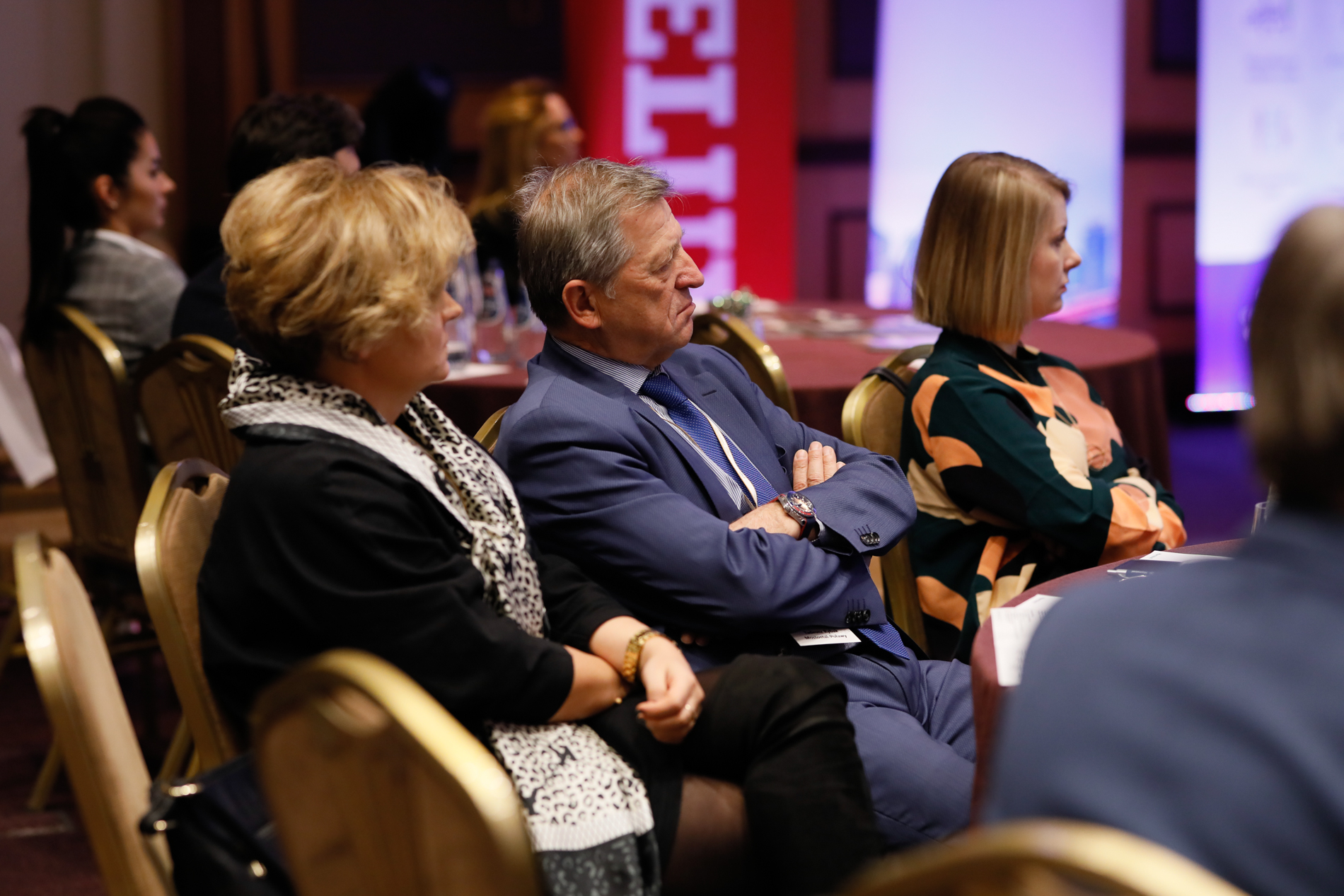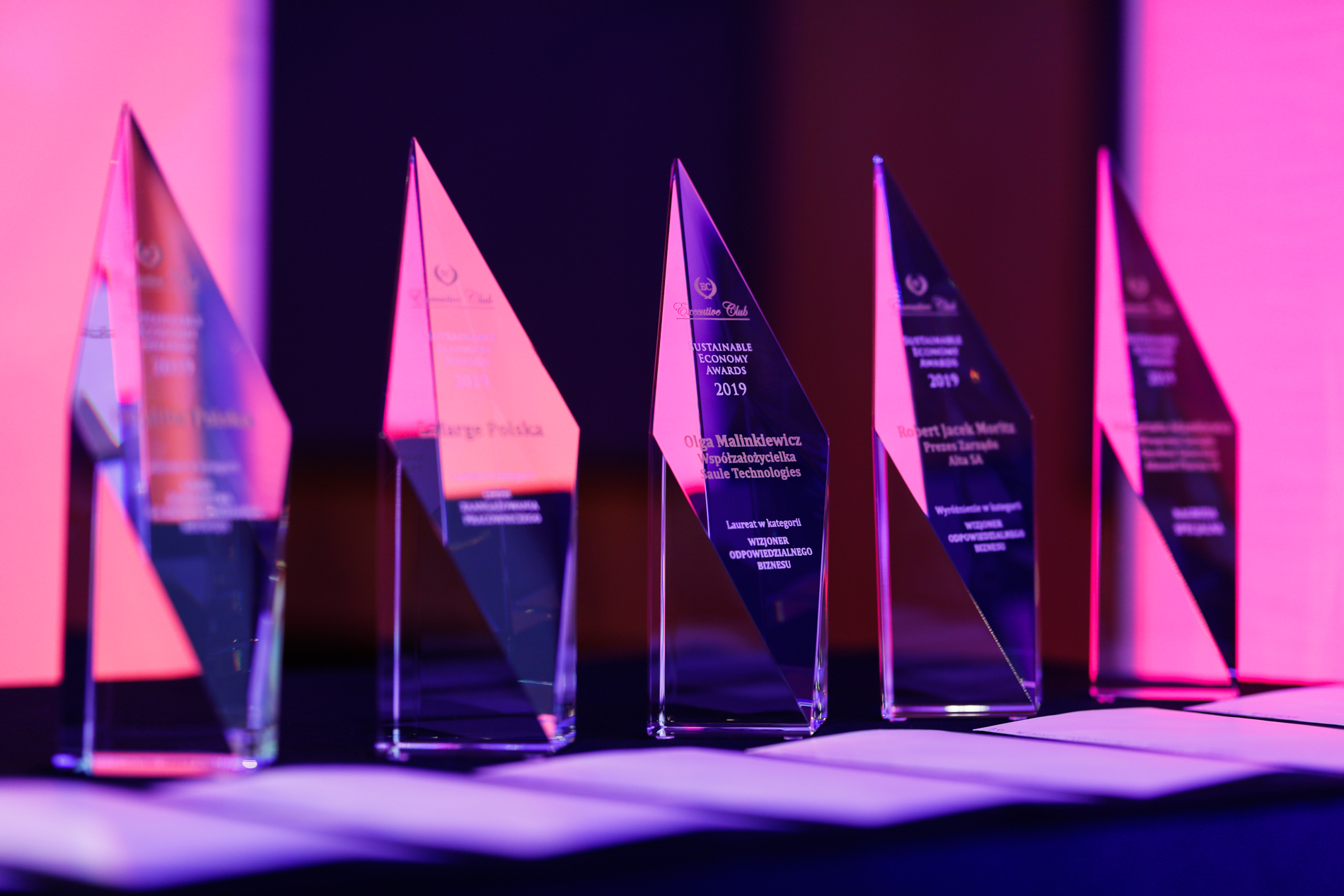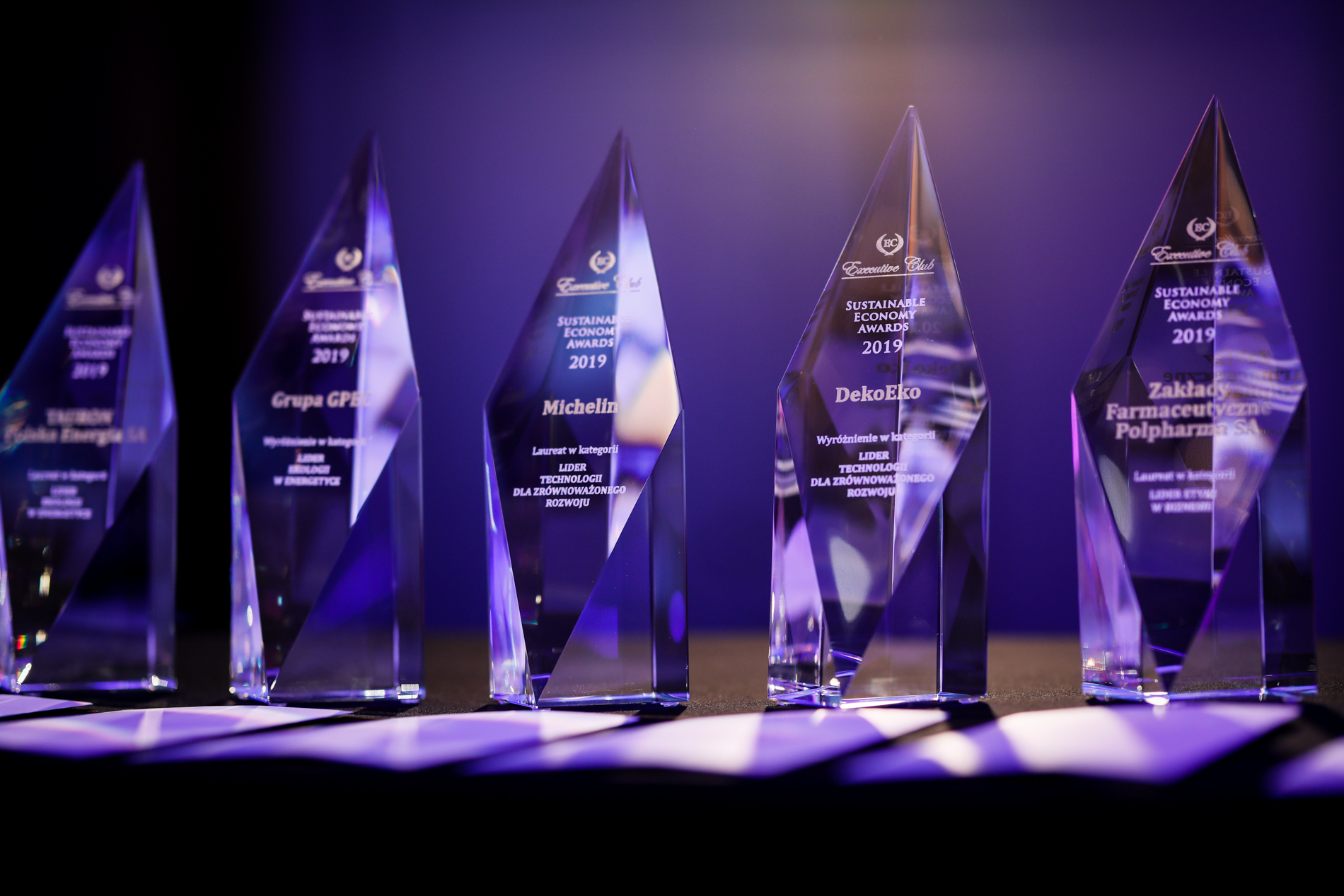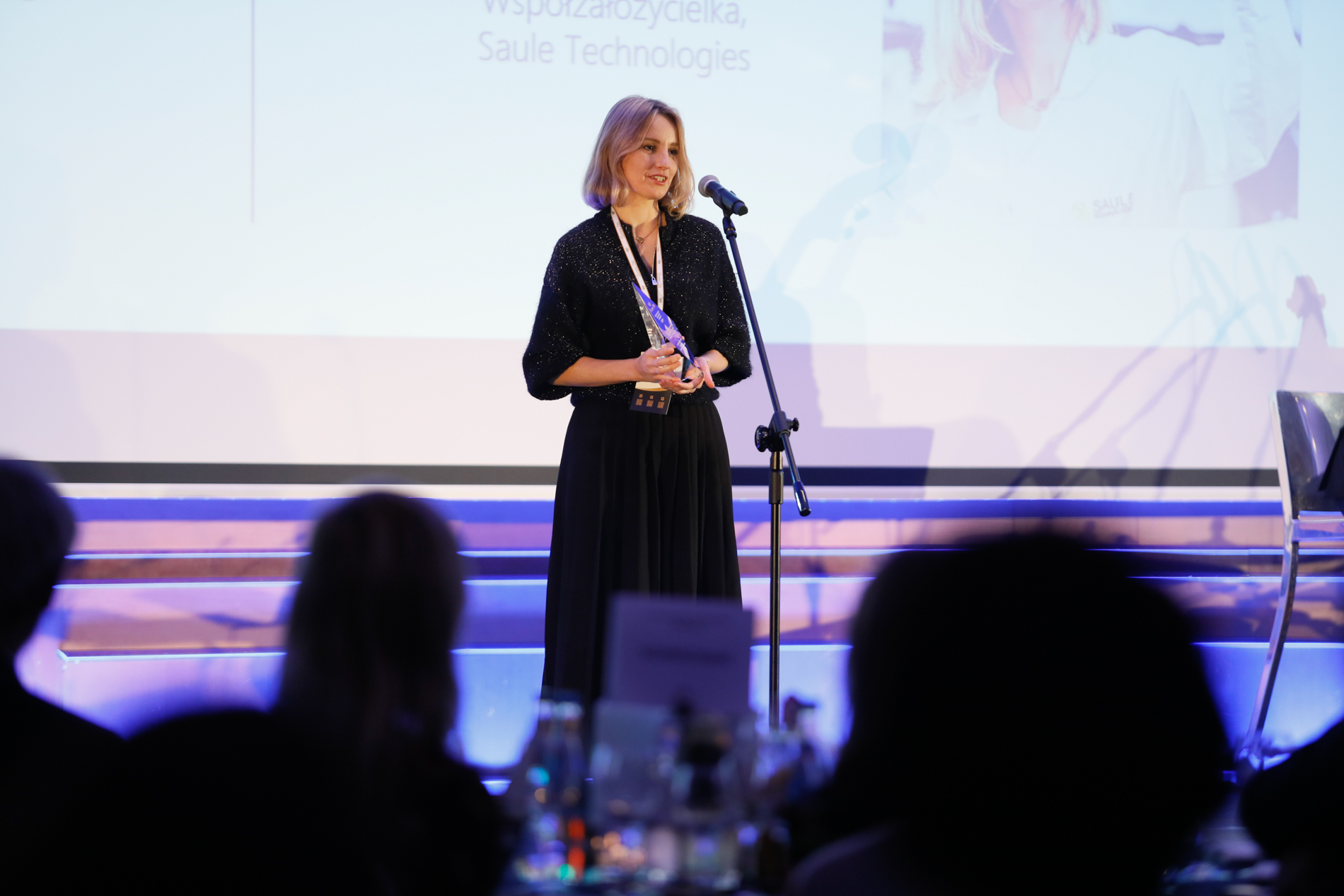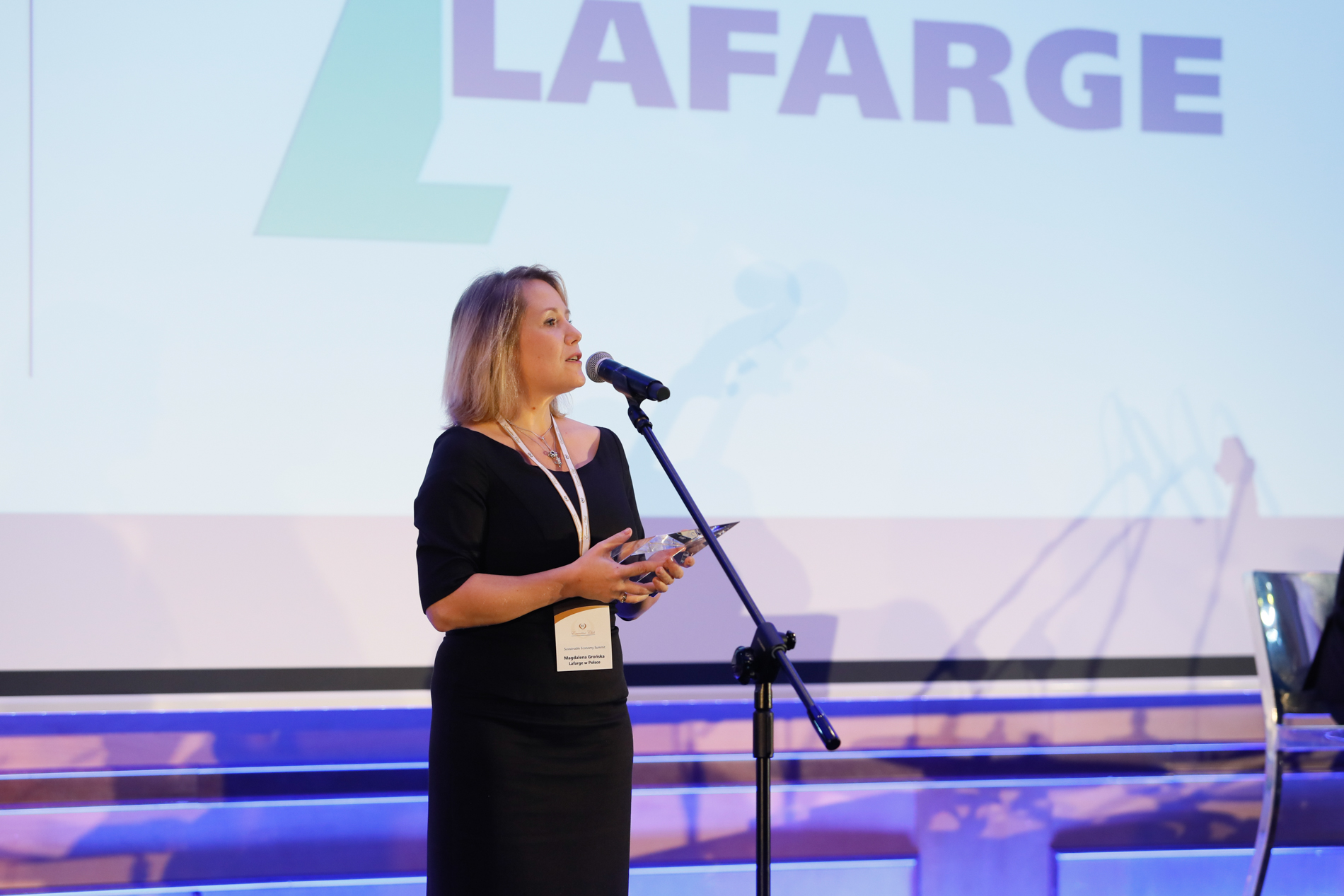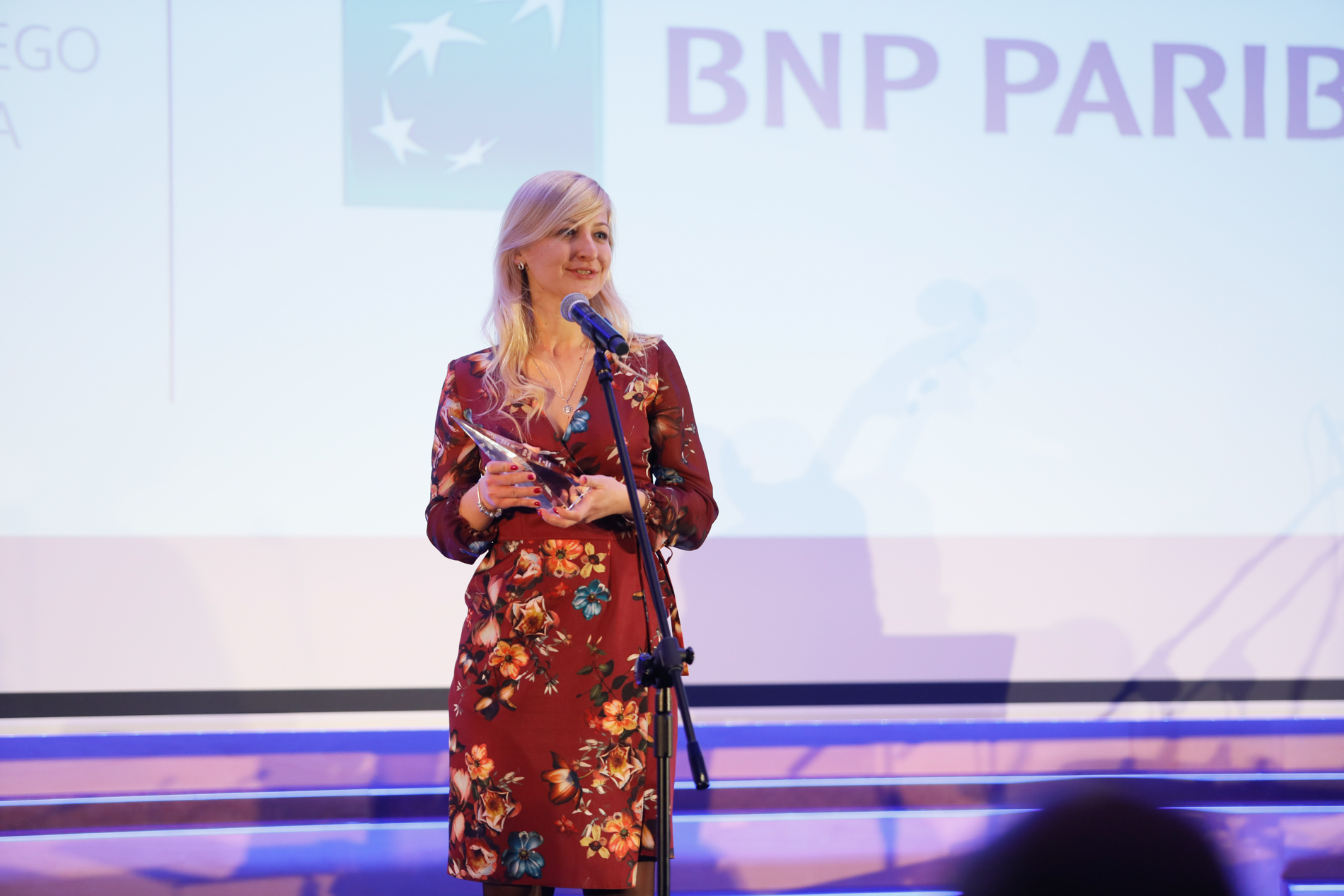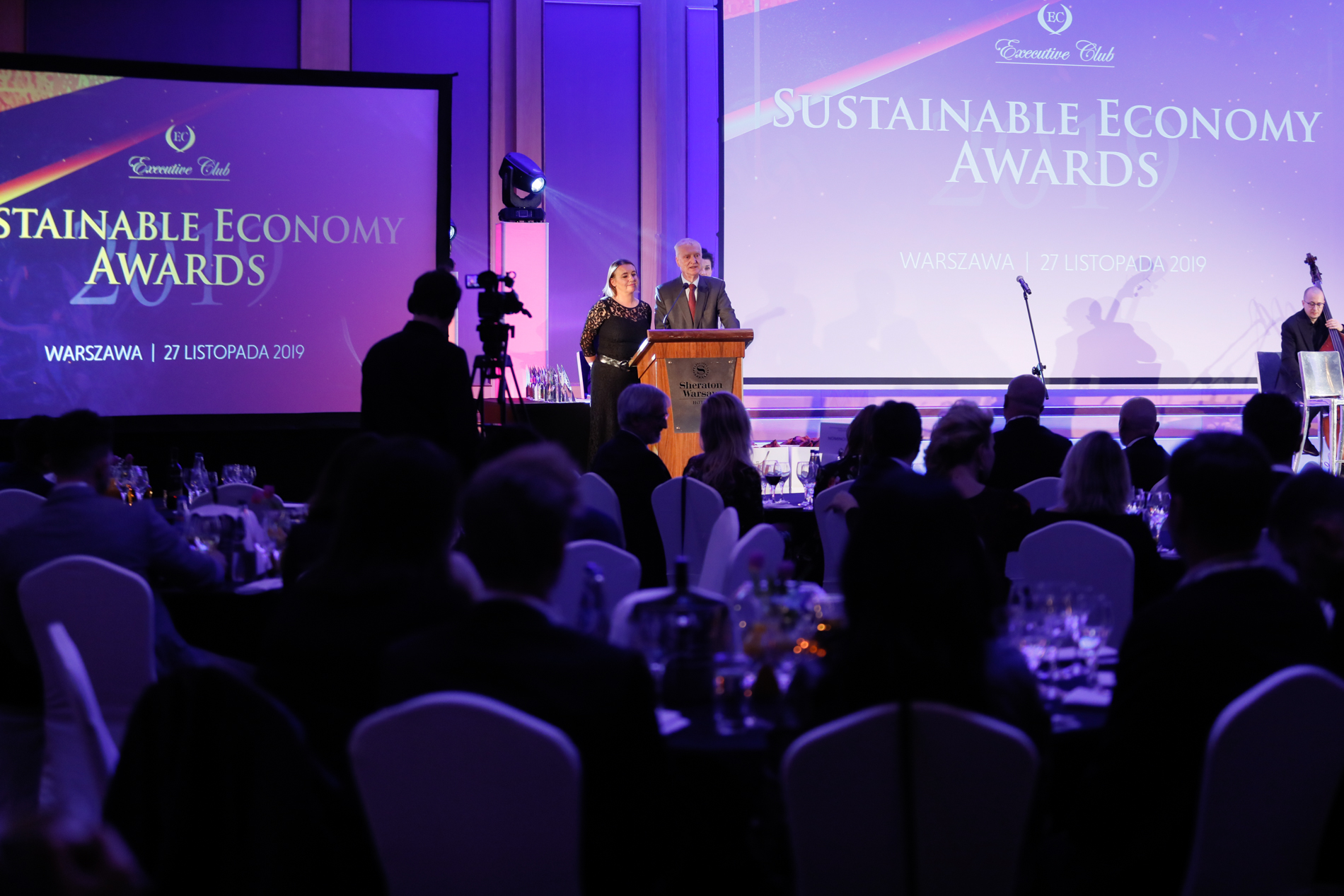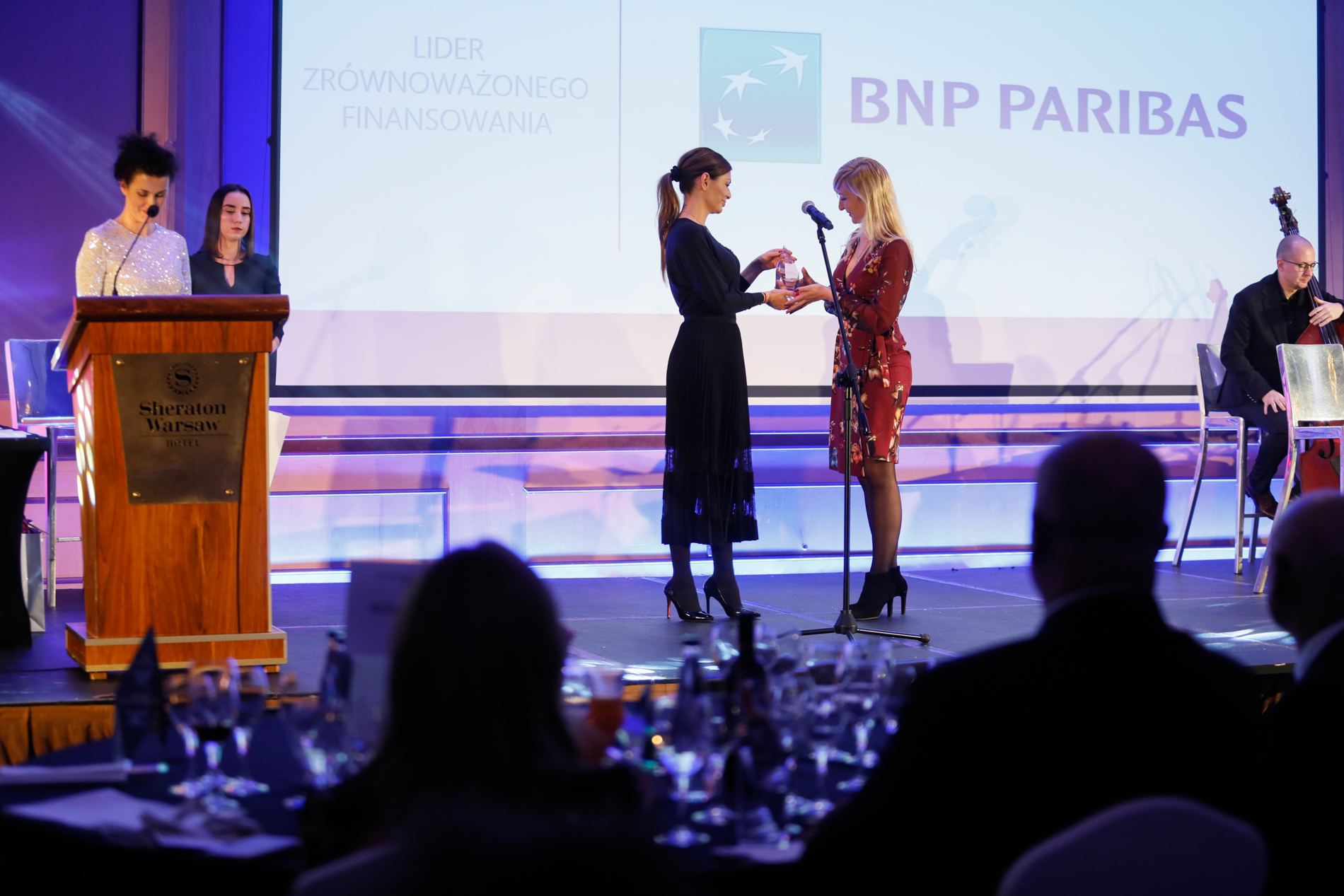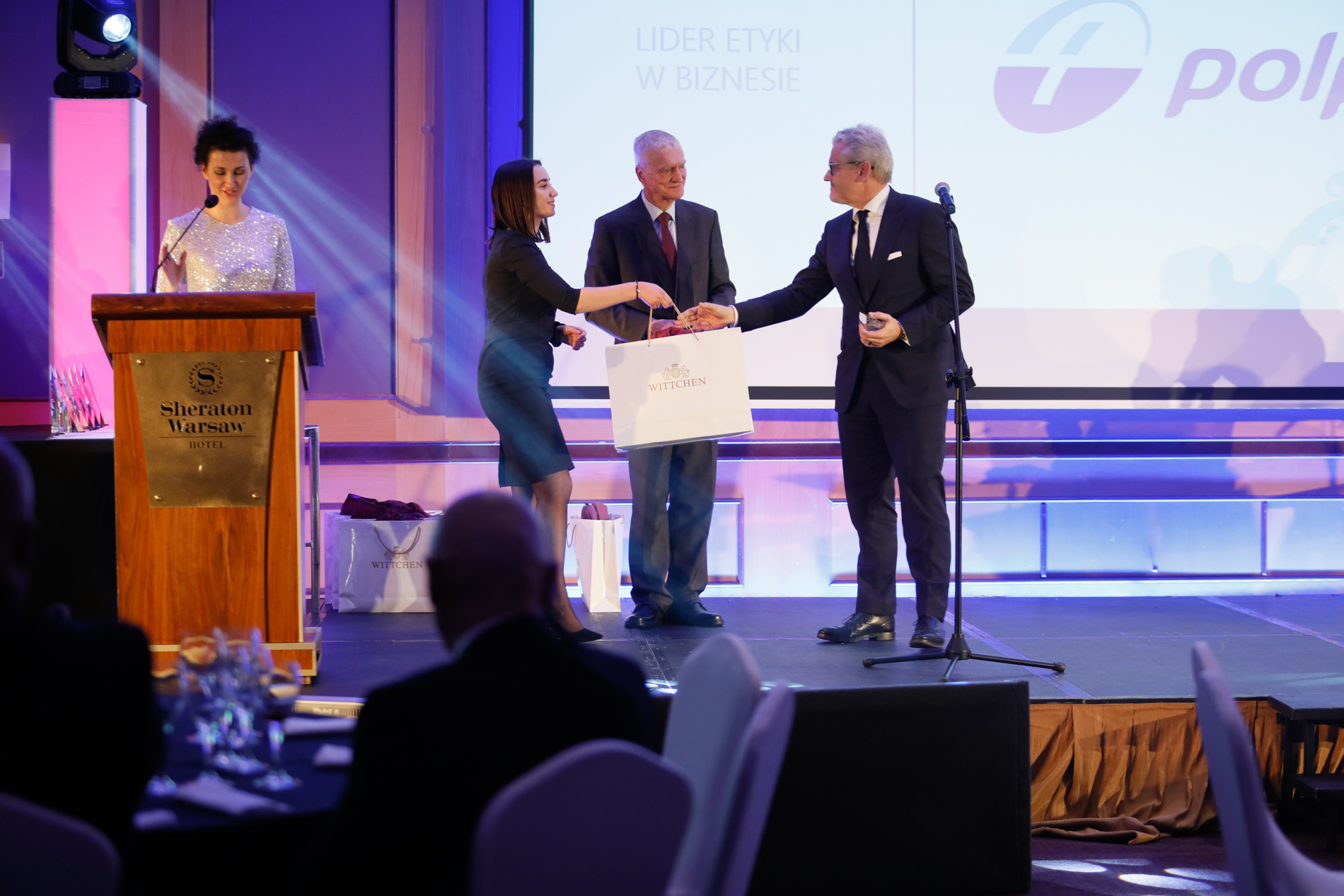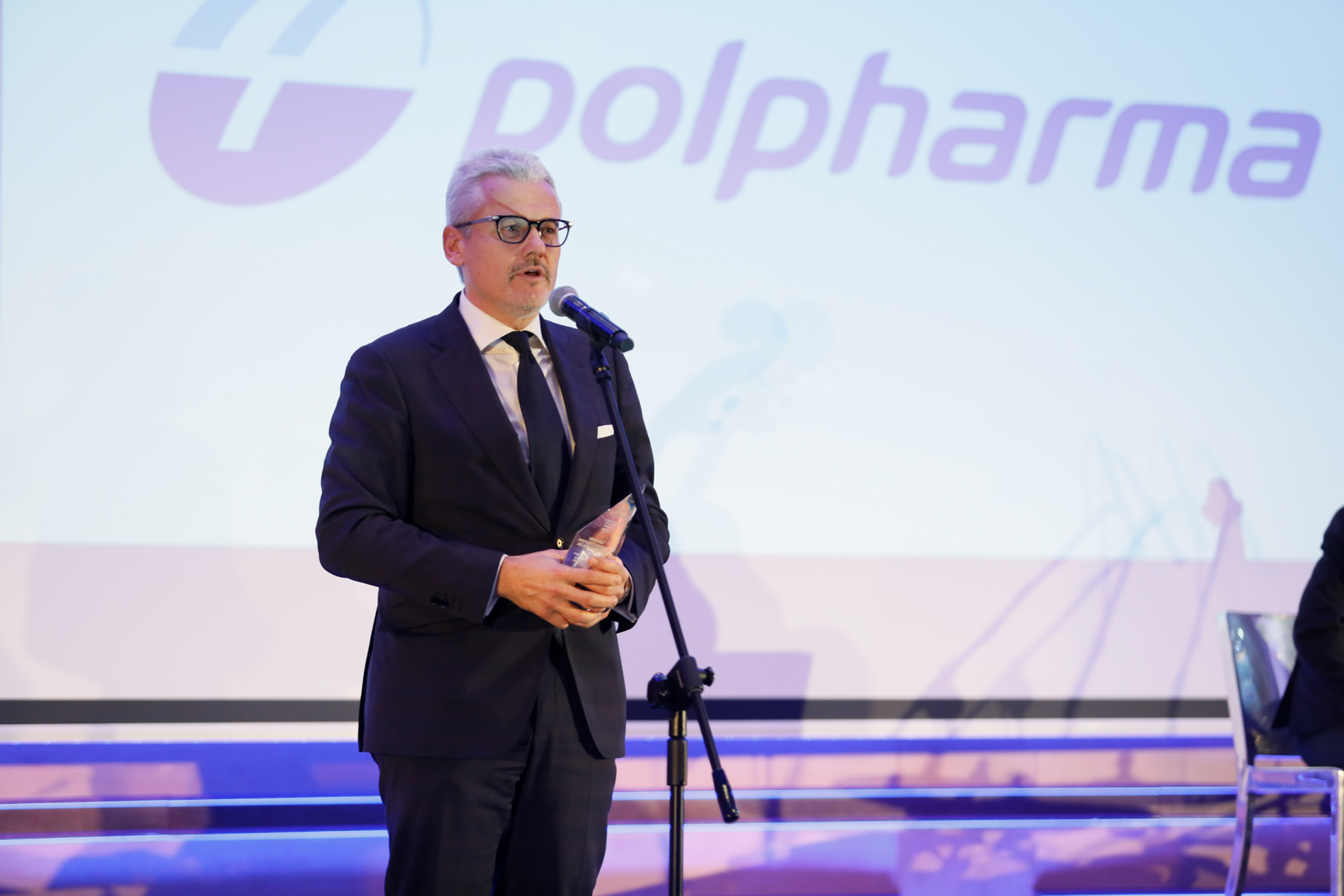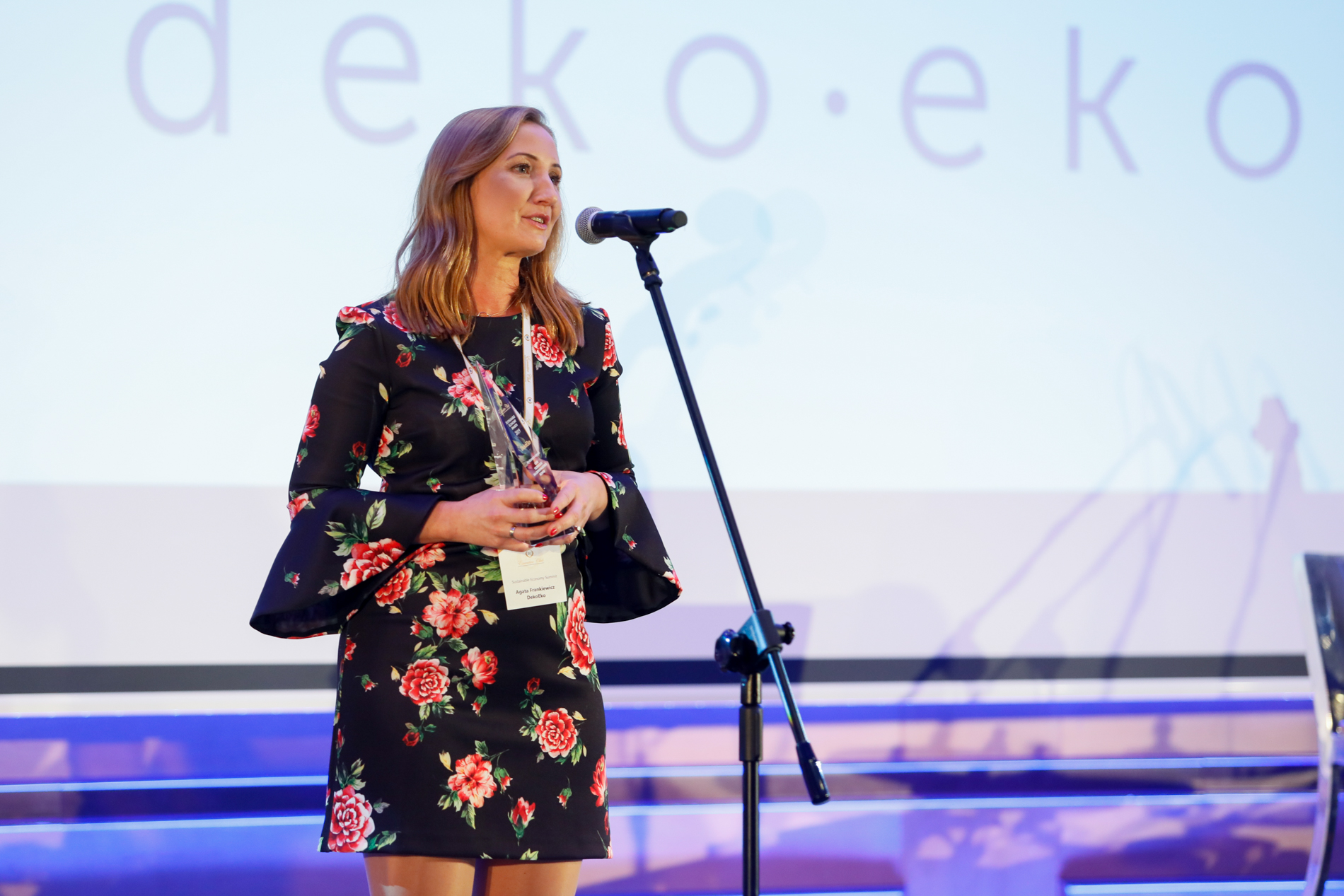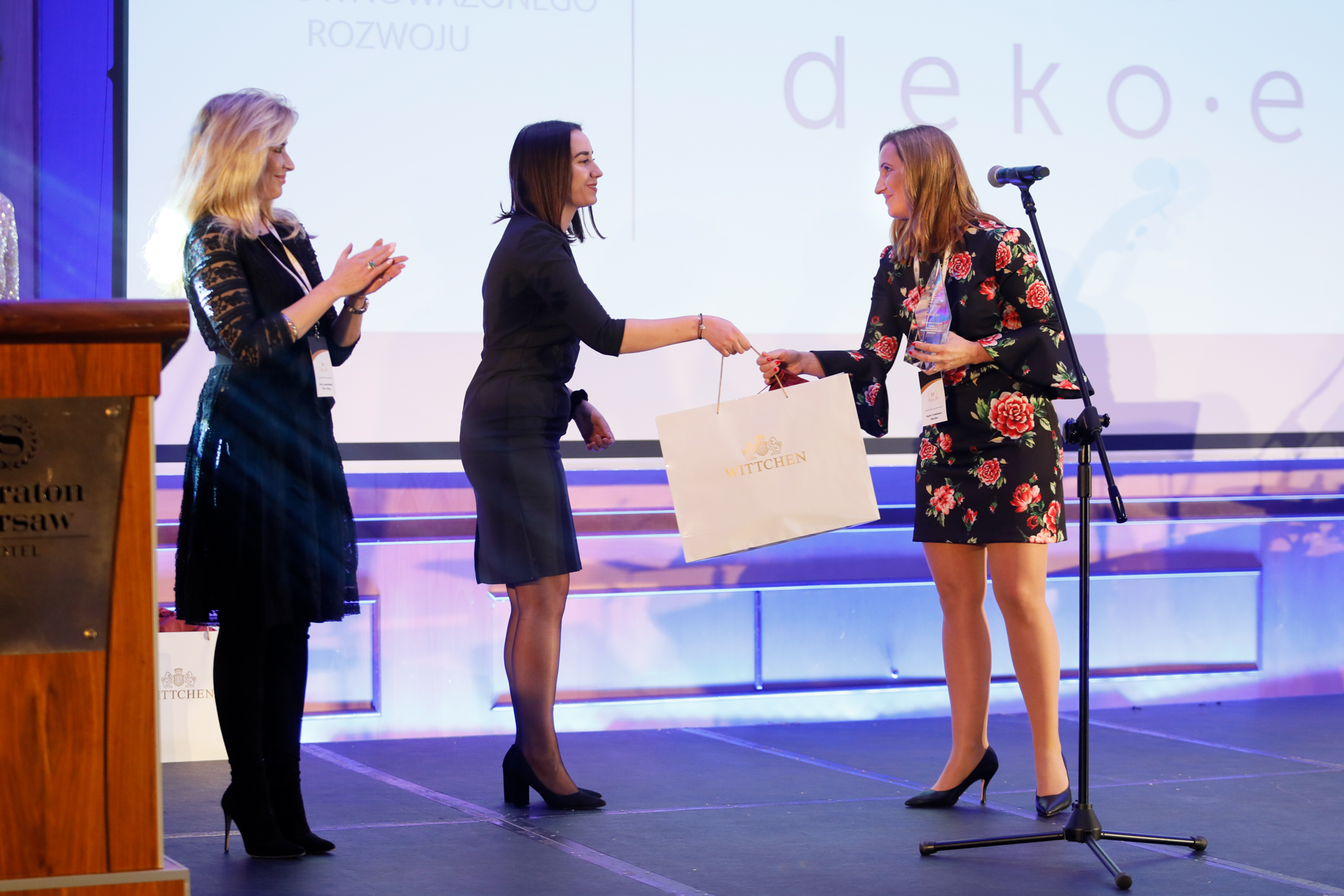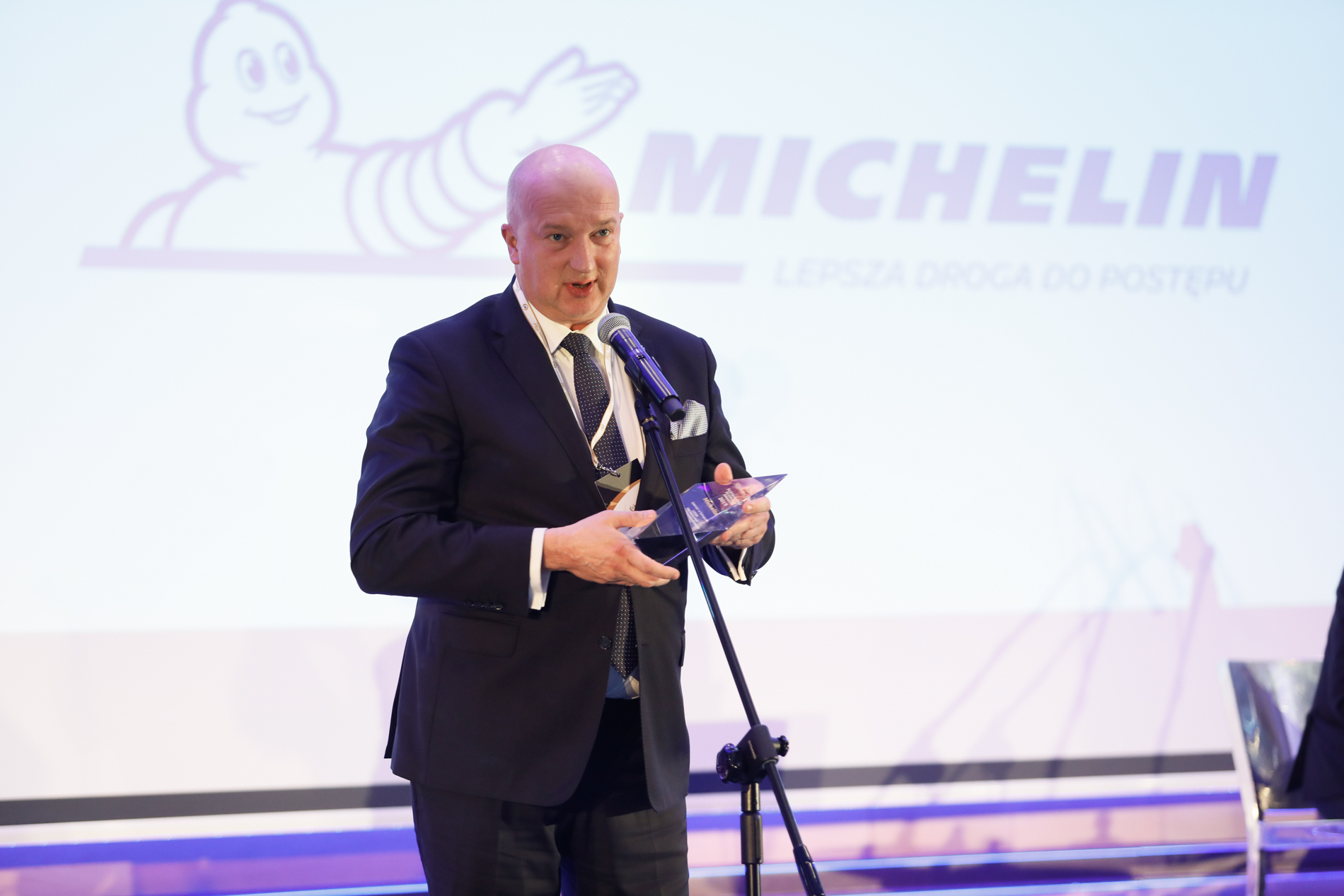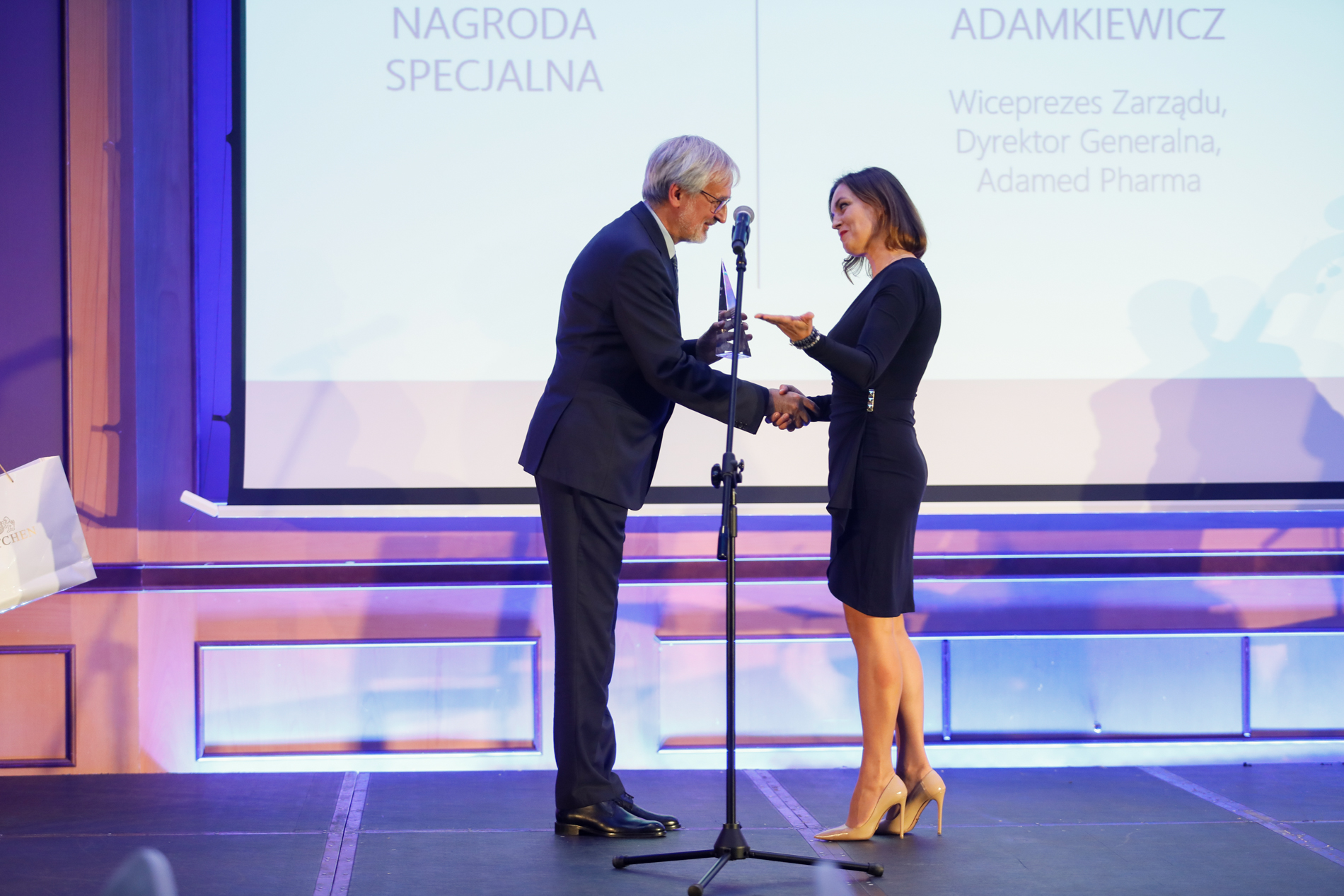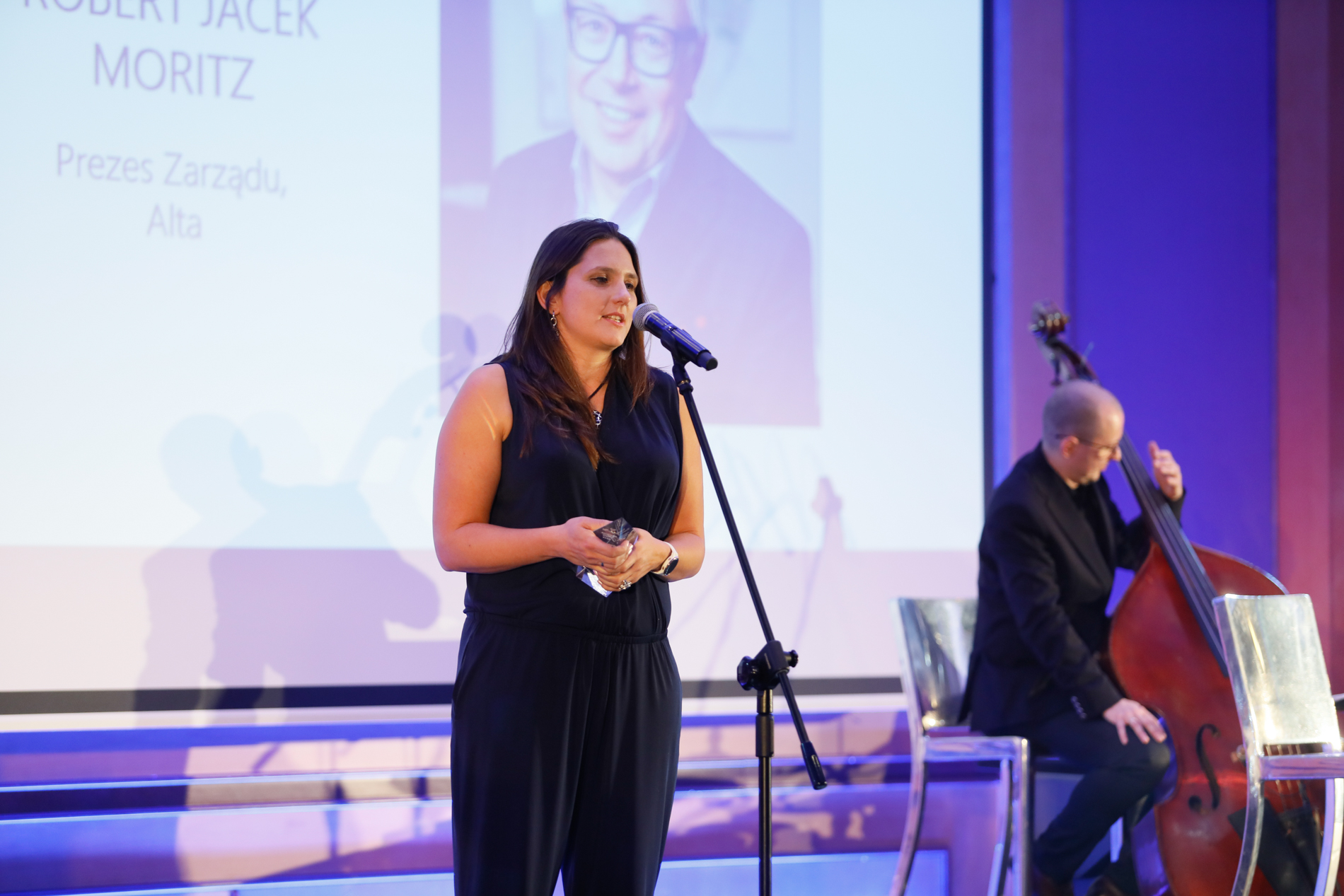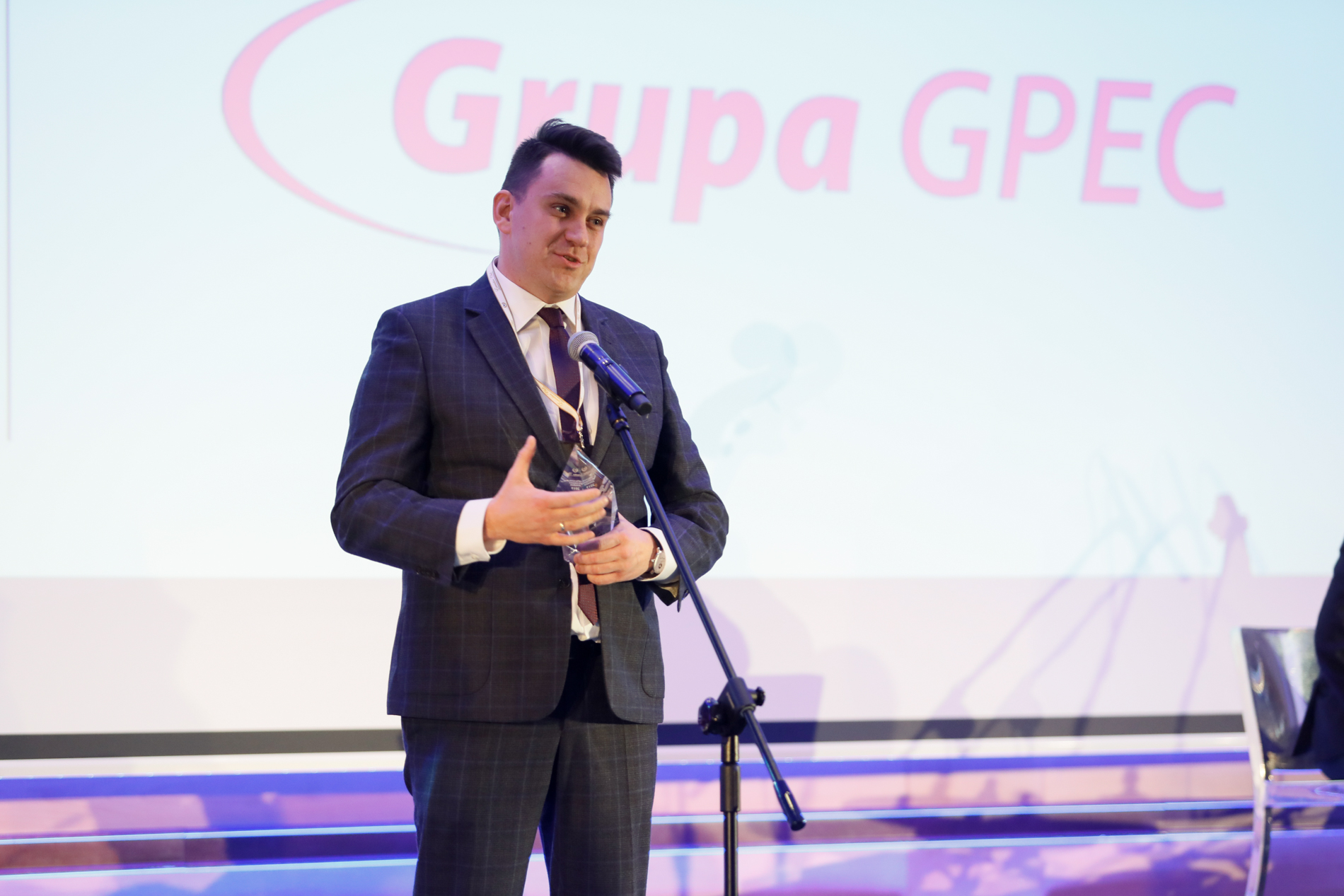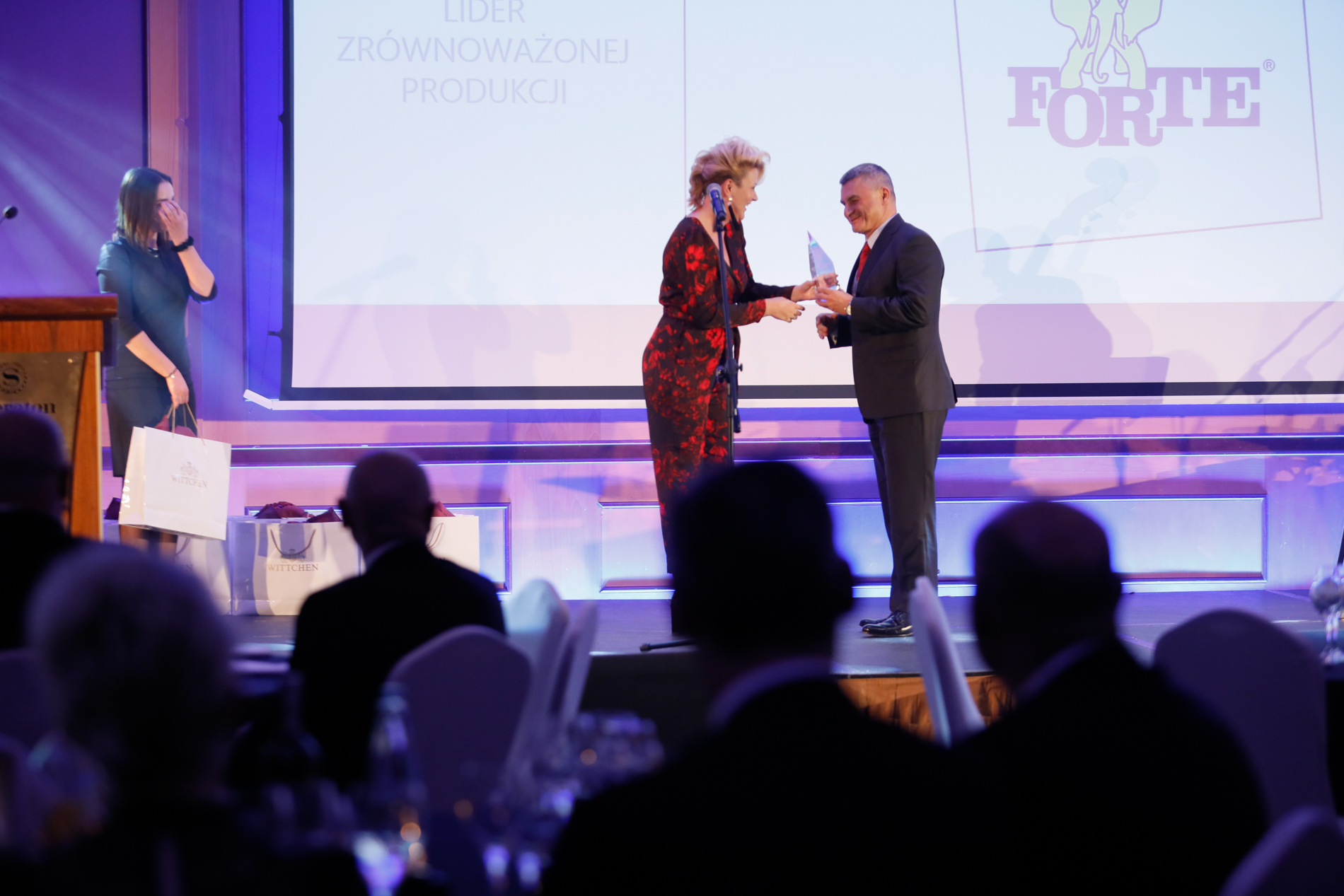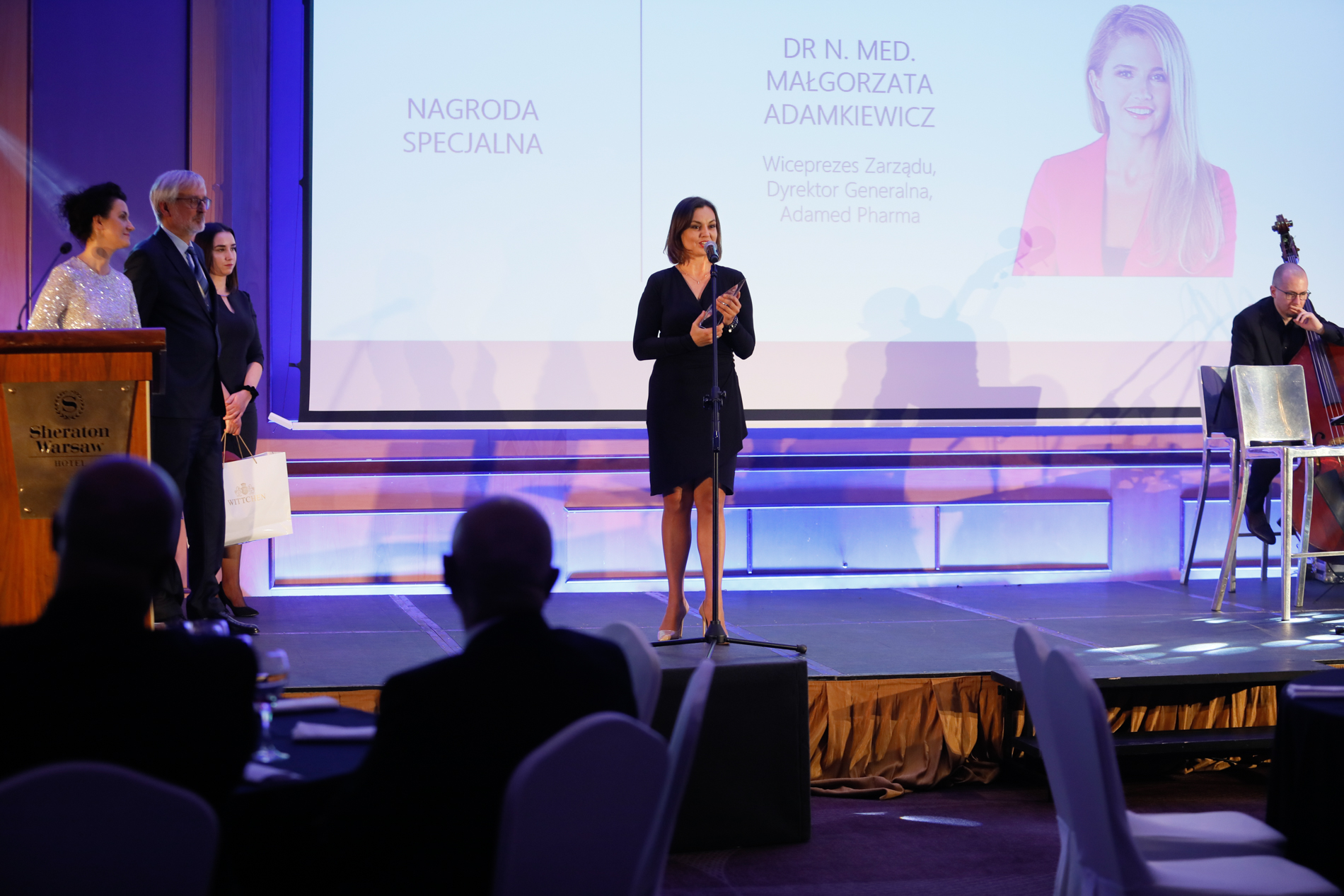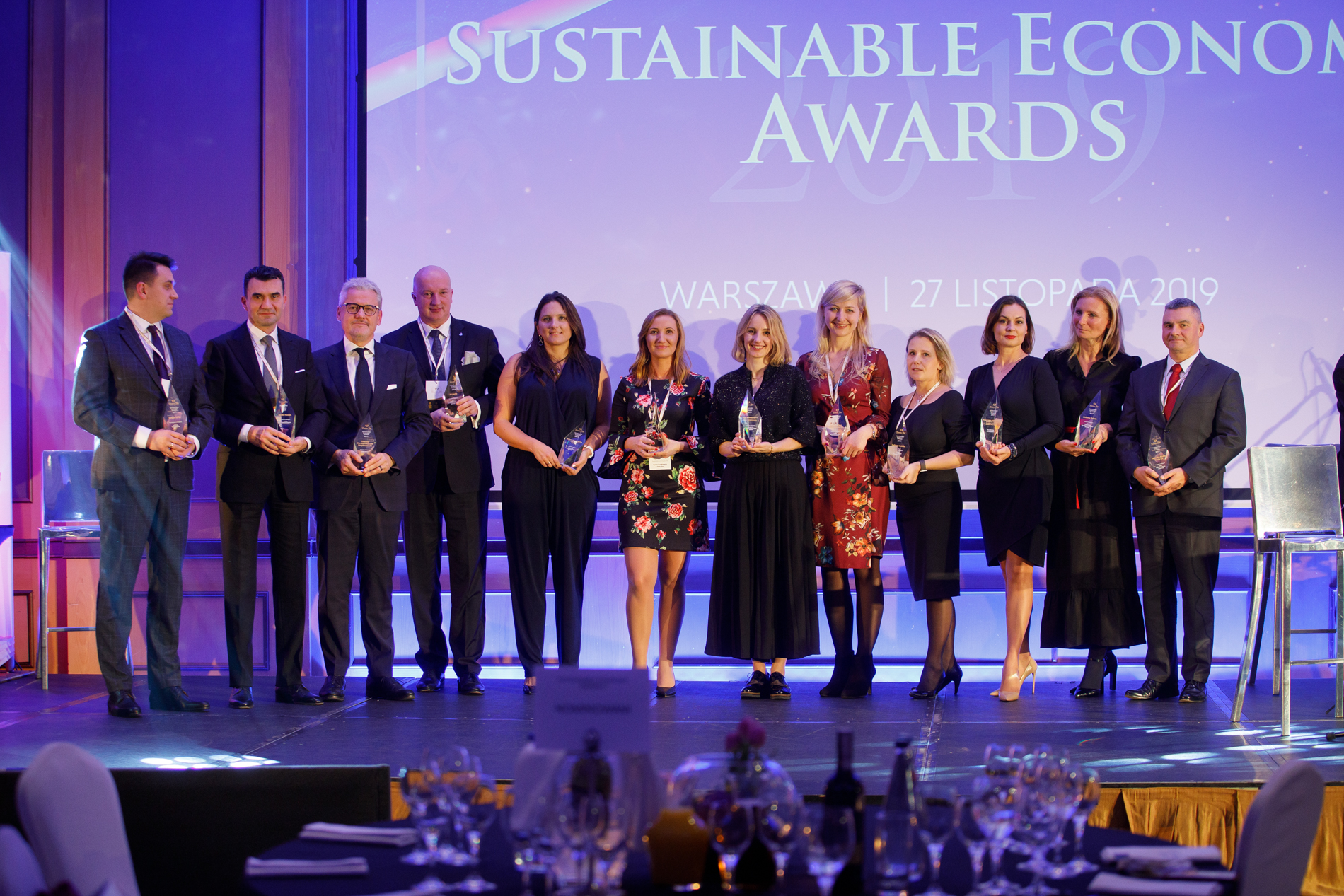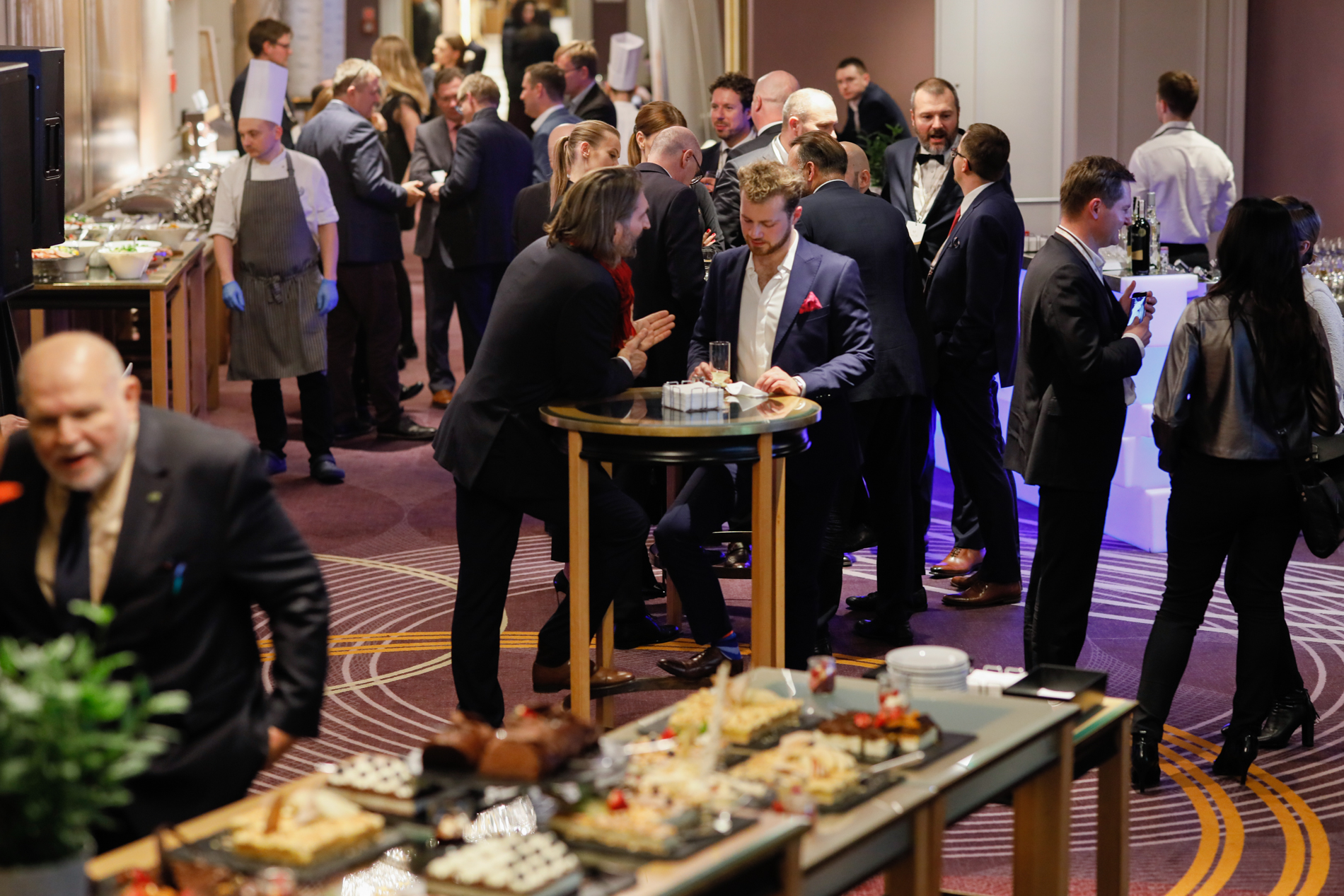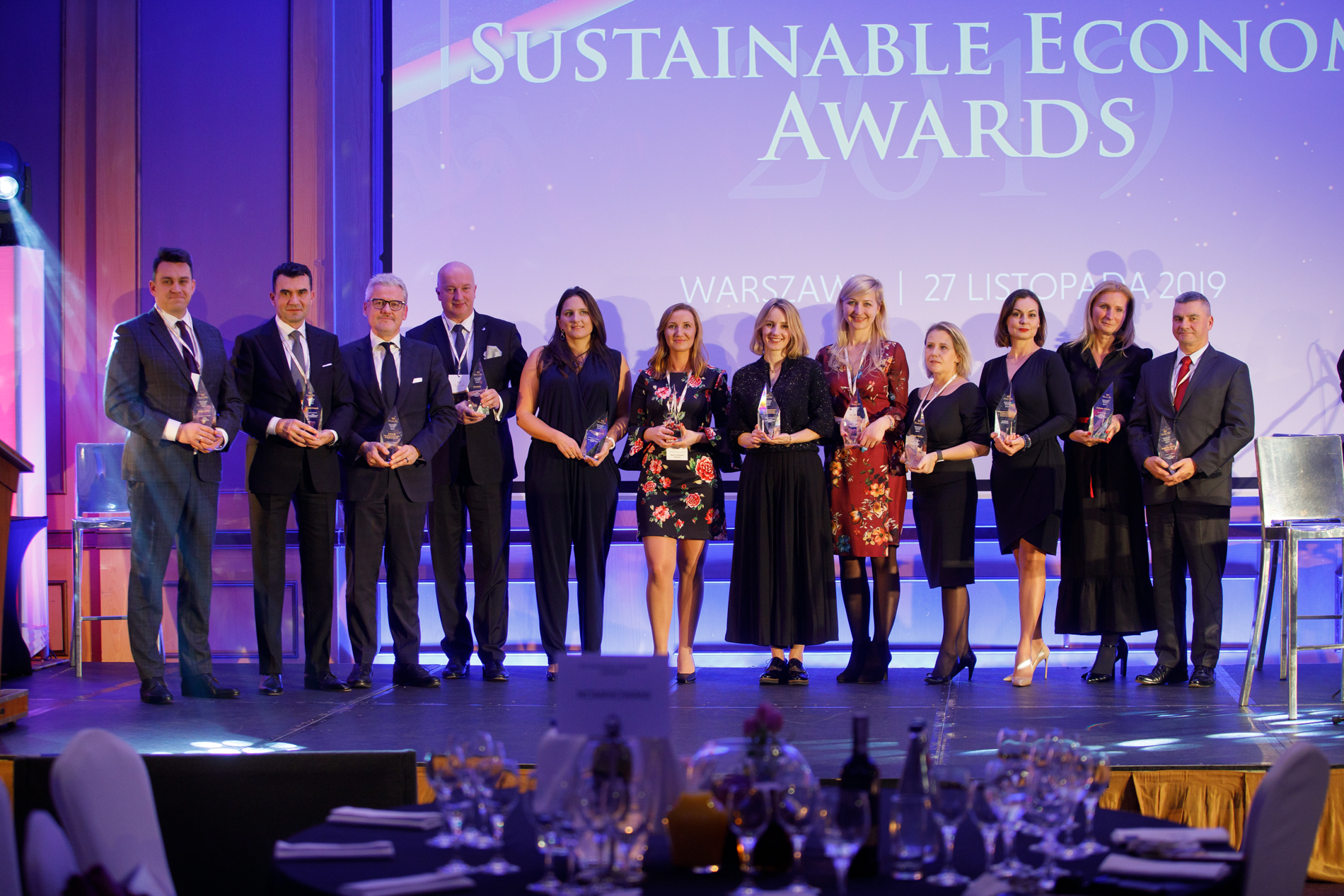
The fifth edition of the Sustainable Economy Summit conference closed a very intense year performed by the Executive Club. The event took place on November 27 at Sheraton Grand Warsaw. During three discussion panels and five speeches we discussed the most important issues related to sustainable and responsible development. The culmination of the day was the evening gala of “Sustainable Economy Awards”, during which we honored enterprises and people who particularly distinguished themselves in the field of responsible business.
The event was inaugurated by Kamil Wyszkowski – Representative and Chairman of the Board of the Global Compact Network Poland, who pointed out what actions can be taken by humanity to limit the progressive consequences resulting from climate change caused by human activity. One of the solutions is to give up existing, high-emission methods of obtaining energy and replace them with renewable sources, as well as to radically reduce the carbon footprint due to the use low-emission transport. The speaker pointed out that if humanity does not take appropriate action, it will have to deal with increasingly extreme weather phenomena and global temperature rise. As a result, there will be a water crisis and it is water, according to analysts, that will fuel future conflicts. To dismiss these visions, it is important to take brave and strict steps immediately for sustainable business and responsible use of natural resources.
Plenary discussion of the first panel led by Prof. Bolesław Rok from the Department of Entrepreneurship and Ethics in Business at the Koźminski University concerned the circular economy, in other words – rational use of resources and opposing waste. The debate was attended by: Iwona Jacaszek-Pruś – Corporate Affairs Director, Kompania Piwowarska, Dr Robert Daniluk – Director of the Quality, Safety and Sustainable Development Department, Lyreco Polska; Leszek Kąsek – Senior Economist at the Macroeconomic Analysis Office, ING Bank Śląski; Łukasz Ludwisiak – Sustainable Development Manager, Lafarge in Poland; Jacek Siwiński – President of the Board, VELUX Polska and Michał Ziajowski – President of the Board, Precia Polska. One of the issues all panelists referred to was the actions companies take to reduce the consumption of natural resources. The key activity is waste treatment and reuse. Łukasz Ludwisiak pointed out that the building materials industry is very absorbent when it comes to the consumption of raw materials. Poland, on the other hand, boasts one of the most modern cement industry plants in which the heat energy used is replaced by alternative fuels in over 60%, which results in a significant reduction in the use of deposits. The panelists emphasized that building the company’s strategy around the circular economy brings benefits for both the environment and competitiveness of the company.
Before the end of the first part of the conference, participants had the opportunity to listen to the speech of Mrs. Iryna Szwabowska – Sales Manager, Dell Technologies. Can organizations with a strong market position change the world for the better? – this question was the main axis of the presentation. Plastic upcycling, reuse of electronics from recycling, better use of energy, engaging employees in ecological activities – these are only some of the activities undertaken by Dell. This statement proves that gigantic corporations are not indifferent to the problems that the natural environment is facing.
After a short break, it was time for the second Case Study entitled “Actively responsible – B Corp certificate in Benefit Systems”, and was presented by Rafał Mikołajczyk – Deputy Director for Communication and CSR, Benefit Systems. The speaker explained that when issuing the B corp certificate, company legal order, customer relations, environmental impact and activities for local communities are taken into account. It is said that it is not awarded to companies that are the best in the world, but which are the best for the world. As part of their business operations, these companies try to solve social problems. This idea comes from the USA and Canada, and in Europe in terms of the number of companies with this certificate, the Benelux countries as well as Italy and France stand out. Examples of companies that have obtained the B Corp certificate are, among others producers of cosmetics of plant origin or telephones with recycled elements in which modules can be exchanged so the product is adapted to personal needs.
After this speech, we smoothly moved to the second discussion panel entitled “Eco-city of the future”, moderated by Bartosz Dominiak – Deputy Mayor of Ursynów, Smart City Expert & Blogger, and invited the following panelists to the discussion: Andrzej Losor – Marketing and Communication Director, Grupa Górażdże; Mirosław Mila – Vice President of the Management Board for technical matters, Omega Innovations; Adam Targowski – Member of the Board of the Polish Association of Ecological Building PLGBC; Waldemar Witczak – Regional Director of SEGRO; Piotr Zacharski – IOŚ-PIB Expert, Sustainable Development Center. Experts began the discussion with their visions of cities of the future. They listed, among others, zero-emission buildings, waste incineration plants with zero environmental impact (such as the newly opened incinerator in Copenhagen with a ski slope on the roof), smart city with lighting automation in the urban space adapted to current needs, electromobility and effective management of waste produced by urban residents. The next topic of conversation was smog. Panelists agreed that the problem is widespread and very serious. There is a chance, however, that we will be able to reduce the emission of harmful chemical compounds. The number of investments in Warsaw from concrete that reduces nitrogen oxides from the air is growing. It focuses on the convenient location of office buildings, thanks to which employees will limit the use of cars for commuting by public transport. According to experts, media monitoring in the cloud also has great potential – e.g. street lighting when it is needed. Developing a heating network also reduces smog. The development of photovoltaic technology based on perovskites was indicated as a very interesting solution improving energy saving. These minerals use diffused light more efficiently because they do not have to be located only on roofs in the form of panels. They can cover any surface. It is also very important to level the energy losses of buildings to improve their energy balance. The energy consumed is recovered from wastewater and ventilation, and cold is produced as waste, which is then used in air conditioning. All these solutions are already being implemented in Warsaw.
“Are there other methods besides carrot and stick to motivate people to behave properly?” Is the topic of another speech by Dr. Maciej Kraus – Partner, Movens Capital. How does it happen that we know what is good for us and yet it does not always work out? An example of this is the strong correlation between the number of service parking spaces and the number of people commuting to work by public transport. So how can we use all irrationality for our good? First of all, you need to start by minimizing the risk of making wrong decisions based on your knowledge. An example would be the observation of the severity of judges’ judgments at hearings before lunch. It is incomparably higher than sentences passed after lunch. Generally, we know what is good and right for us, but for some reason we do not do it and that is why it is so important to be able to use these weaknesses in a good way. As a hint how to achieve this can serve the so-called Odysseus’s contract, i.e. deliberately weakening yourself for a good purpose – let’s give up the parking spot mentioned at the beginning.
After lunch, we had the pleasure to listen to the fifth speech today. “Seniors – us in the future. How to organize a balanced life when you are 70, 80, 90….. years old?” The author was Paweł Żuk – President of the Board, Medical and Diagnostic Center. From his statements we learned that the in the coming years we would see a significant acceleration in the aging of the population, as the generation of the post-war birth boom is aging. By 2060, Poland will be one of the oldest societies in Europe. We should already think about the challenges that we will face then. 25% of seniors live alone, few of them are socially active, many of them suffer from a lack of valuable contacts with the outside world, natural family ties are broken through excess work. Seniors are digitally excluded, exposed to abuse and multiple diseases. The amount of depression increases (this is the fastest growing group of mental disorders). Seniors consume huge amounts of drugs and supplements (polypragmasia), which often leads to increased problems with the adverse effects resulting from the interaction of two or more drugs. The speaker presented several solutions to these problems. The most important of them is the development of primary health care. It is also important that long-term care for seniors takes place at home, as this is their natural environment. Elderly people will also need a physiotherapist, psychologist and so-called managing your own illness in the face of increasing multiple diseases. Activities are invaluable, but the most important thing is family support.
The third and final discussion panel concerned innovation in chemistry and pharmacy for sustainable development. The moderator was Dominik Wójcicki – the editor-in-chief of “Chemia i Biznes”, and his interlocutors were: prof. Janusz Jurczak – Faculty of Chemistry of the University of Warsaw, Institute of Organic Chemistry of the Polish Academy of Sciences; Maciej Korbasiewicz – Chairman of the Board, BOLIX; Michał Kurzelewski – Medical Director, Pfizer Polska; Krzysztof Mazurek – Member of the Board, Bayer Polska; Hanna Śliwińska – Marketing Manager, CF Cefarm. As Michał Kurzelewski said at the beginning: “the role of the pharmaceutical industry is to take risks, implement innovative solutions and make them available to patients”. These types of activities are revolutionizing the industry and changing the thinking paradigm. It is not just about maximizing profit from the product, but also about its responsibility towards the environment. An example of active action for corporate responsibility is the development of chemical recycling and thermal waste treatment plants. Sustainable development in this matter will not be without active state policy, and because social acceptance for innovation according to research is high, it is a good time for such bold actions. In this context, business cooperation with research centers and industry is necessary. For example, the German pharmaceutical industry has generated a number of implemented innovations to improve air quality comparable to the amounts invested in army!
After the substantive part was over, it was time for the evening gala. Her highlight was the Sustainable Economy Awards ceremony for the best companies, outstanding managers and business leaders who implement the highest standards of responsible business. This year, 13 prizes were awarded in 9 categories.
Winners of the “Sustainable Economy Awards”:
SUSTAINABLE CONSTRUCTION LEADER
Segro Poland
SUSTAINABLE PRODUCTION LEADER
Fabryka Mebli Forte SA
ECOLOGY LEADER IN ENERGY
TAURON Polska Energia SA
GPEC Group – distinction
TECHNOLOGY LEADER FOR SUSTAINABLE DEVELOPMENT
Michelin
DekoEko – a distinction
ETHICS LEADER IN BUSINESS
Polpharma SA Pharmaceutical Works
THE SUSTAINABLE FINANCING LEADER
BNP Paribas Bank Polska SA
CONSULTING LEADER FOR SUSTAINABLE DEVELOPMENT
Deloitte Poland
EMPLOYEE INVOLVEMENT LEADER
Lafarge Poland
VISIONER FOR RESPONSIBLE BUSINESS
Olga Malinkiewicz, Saule Technologies
Robert Jacek Moritz, Alta SA – distinction
Małgorzata Adamkiewicz, Adamed – Special Award
